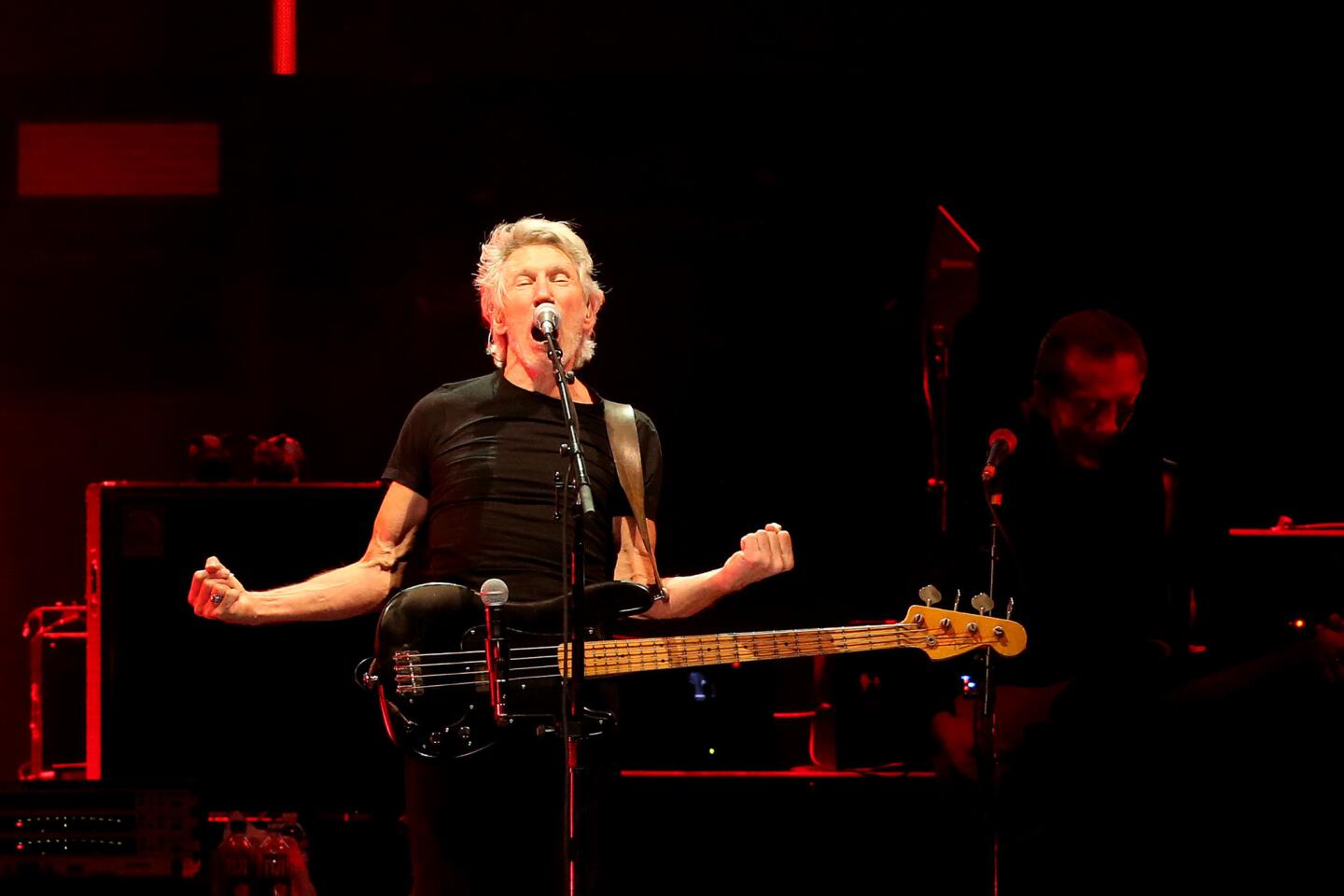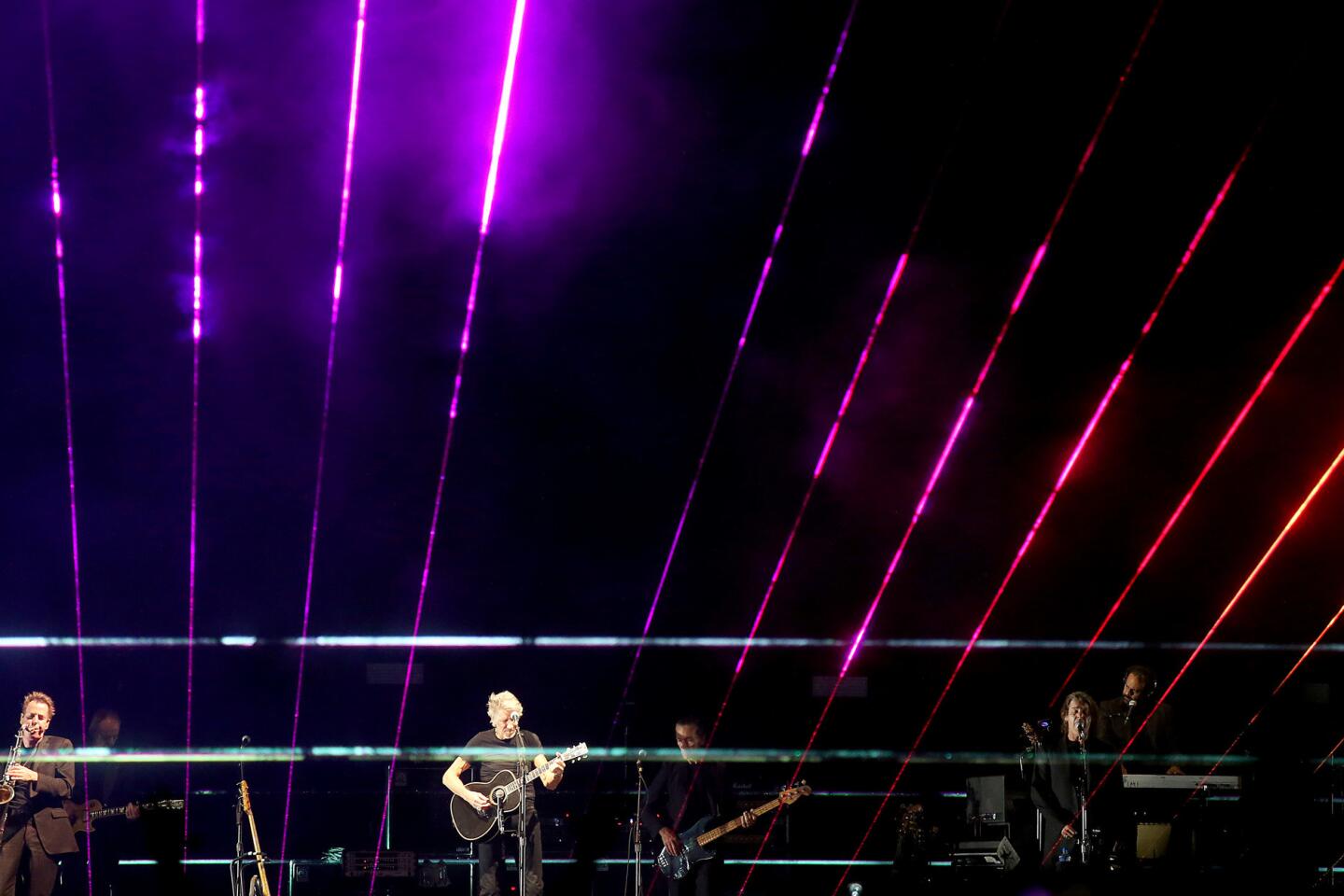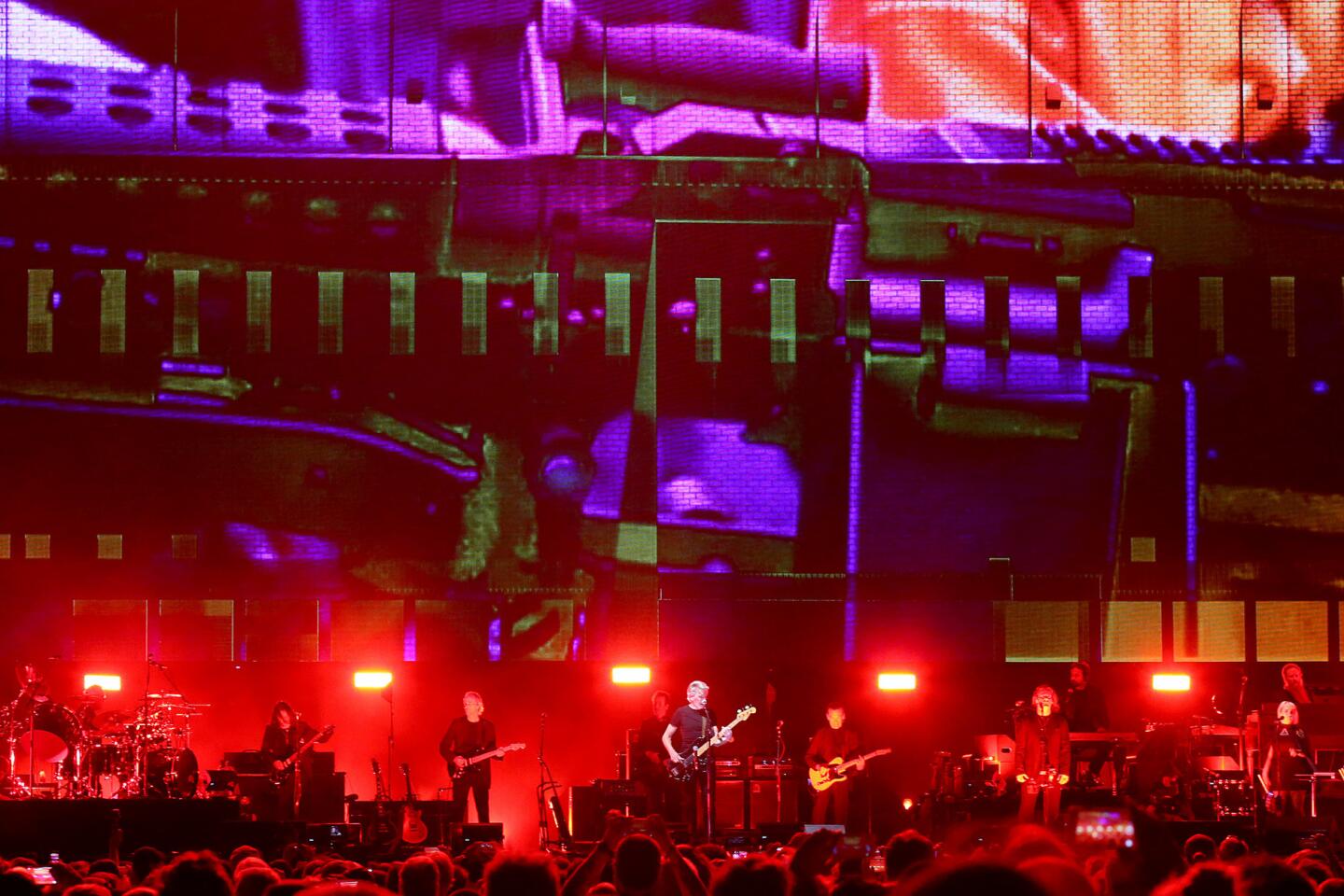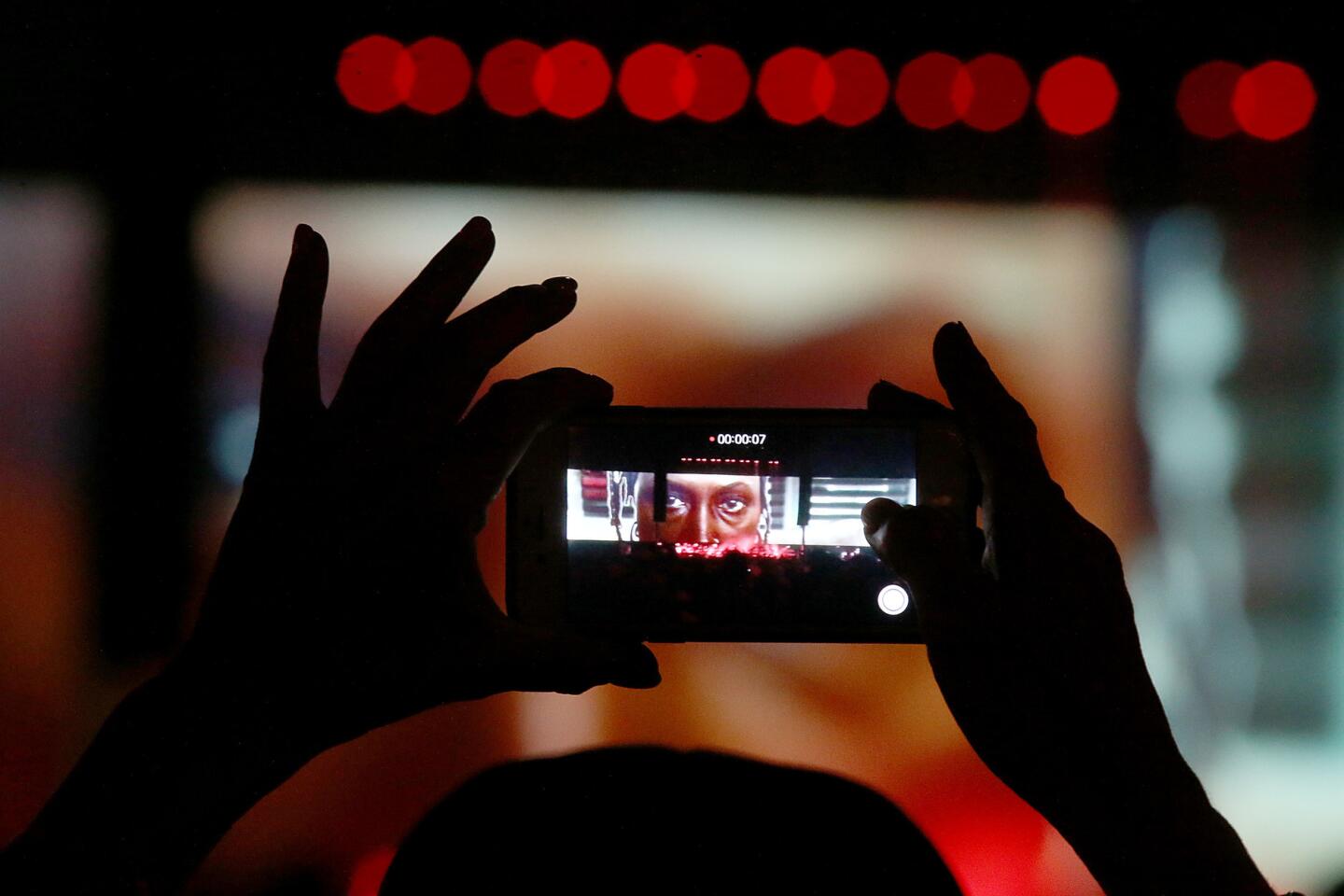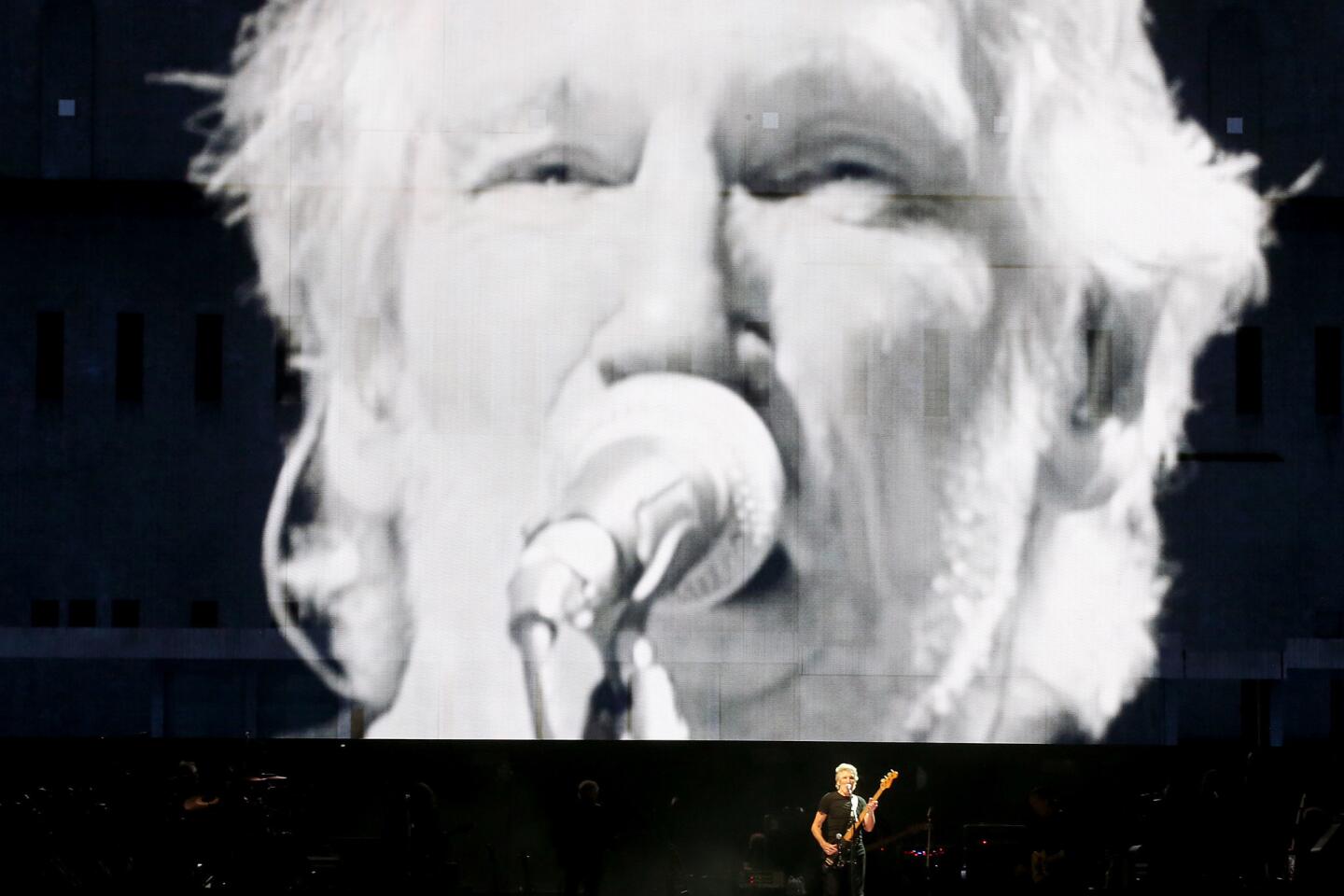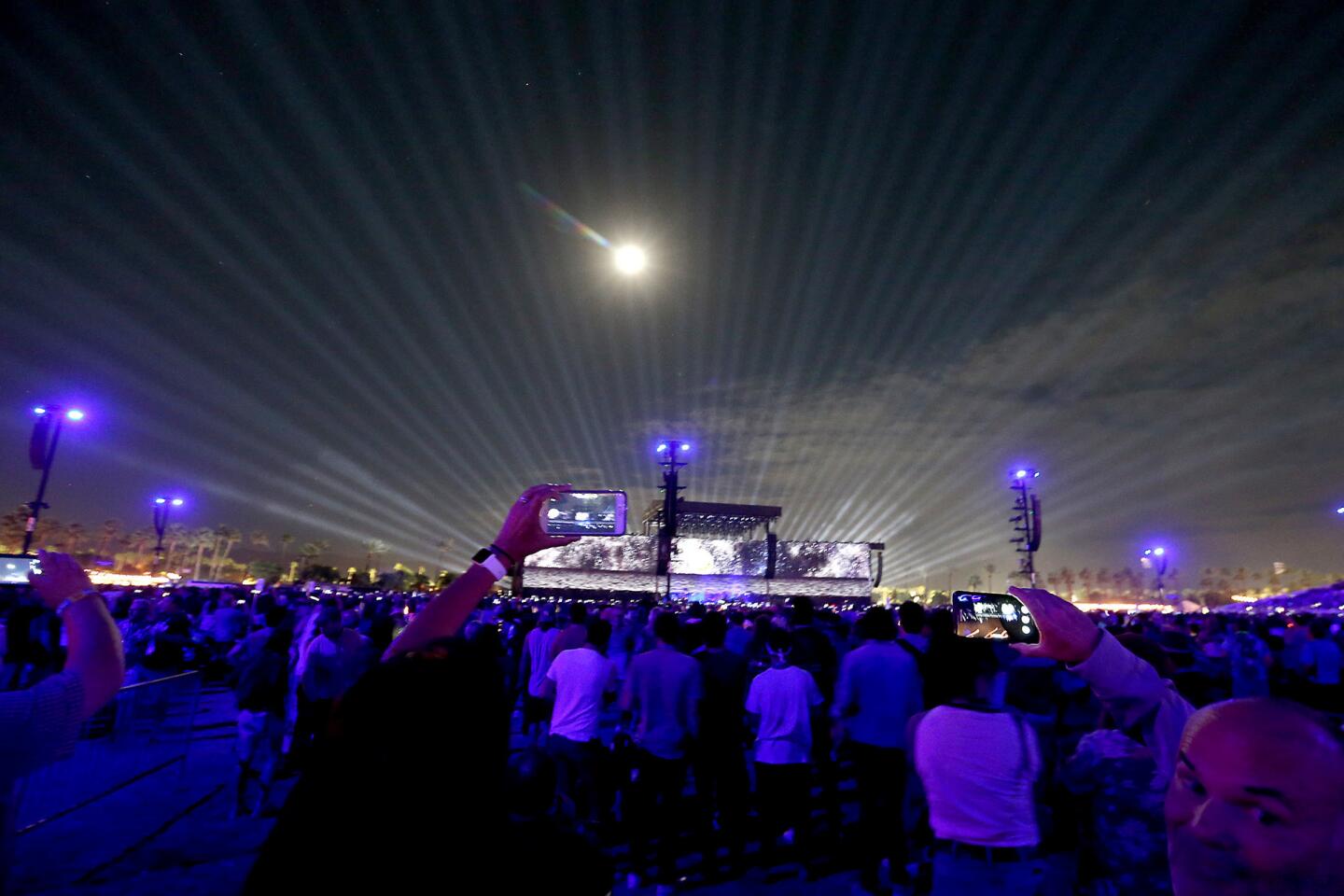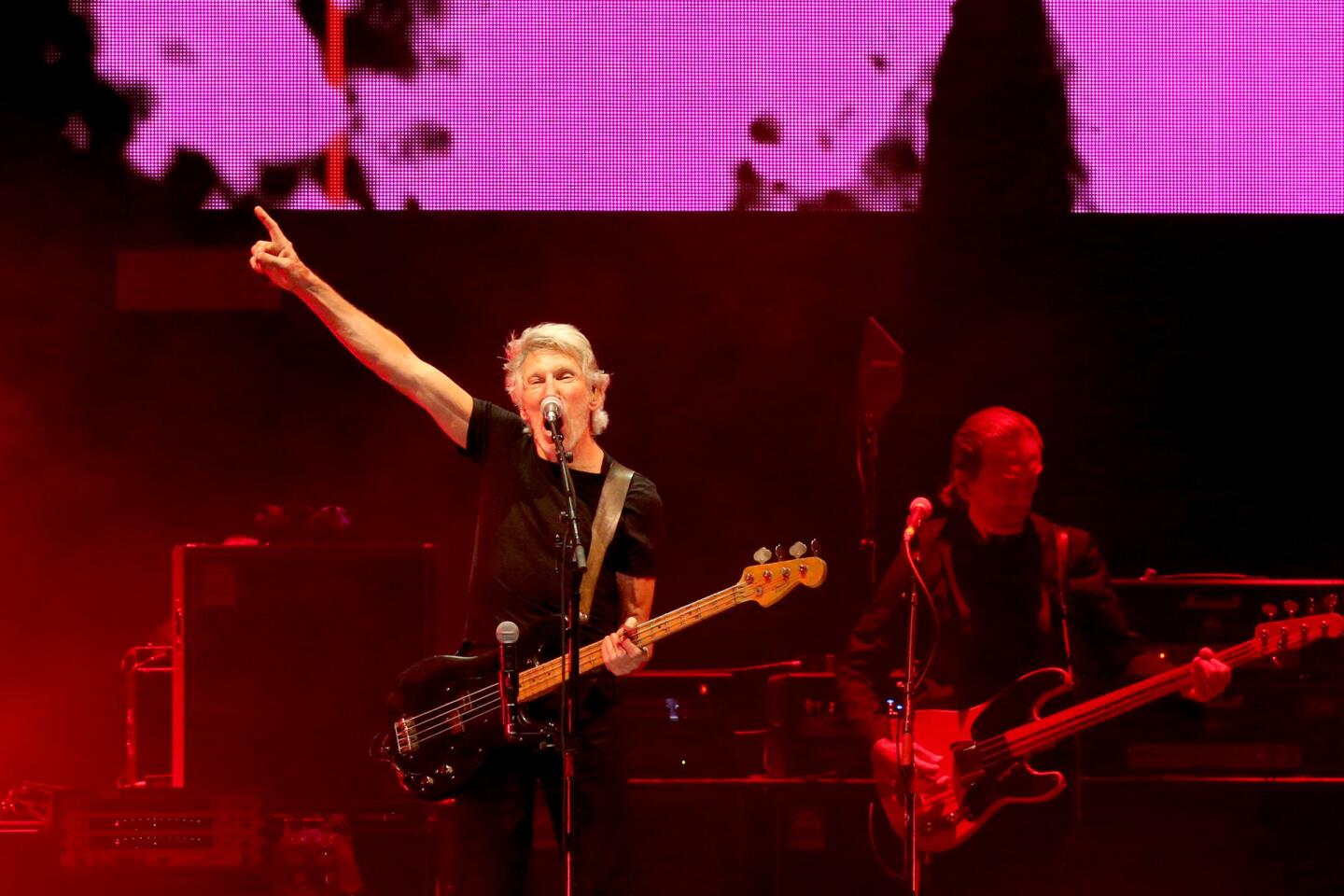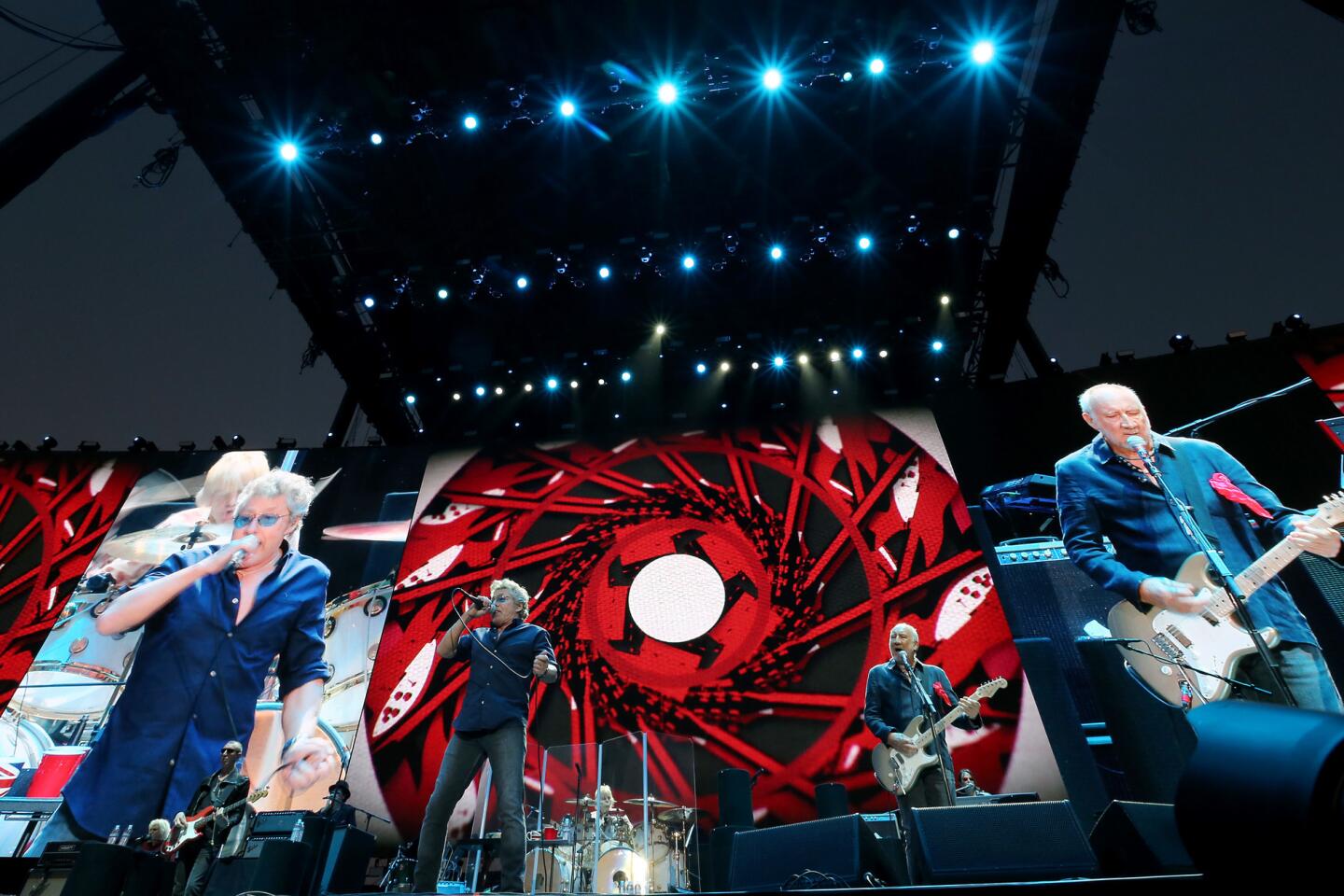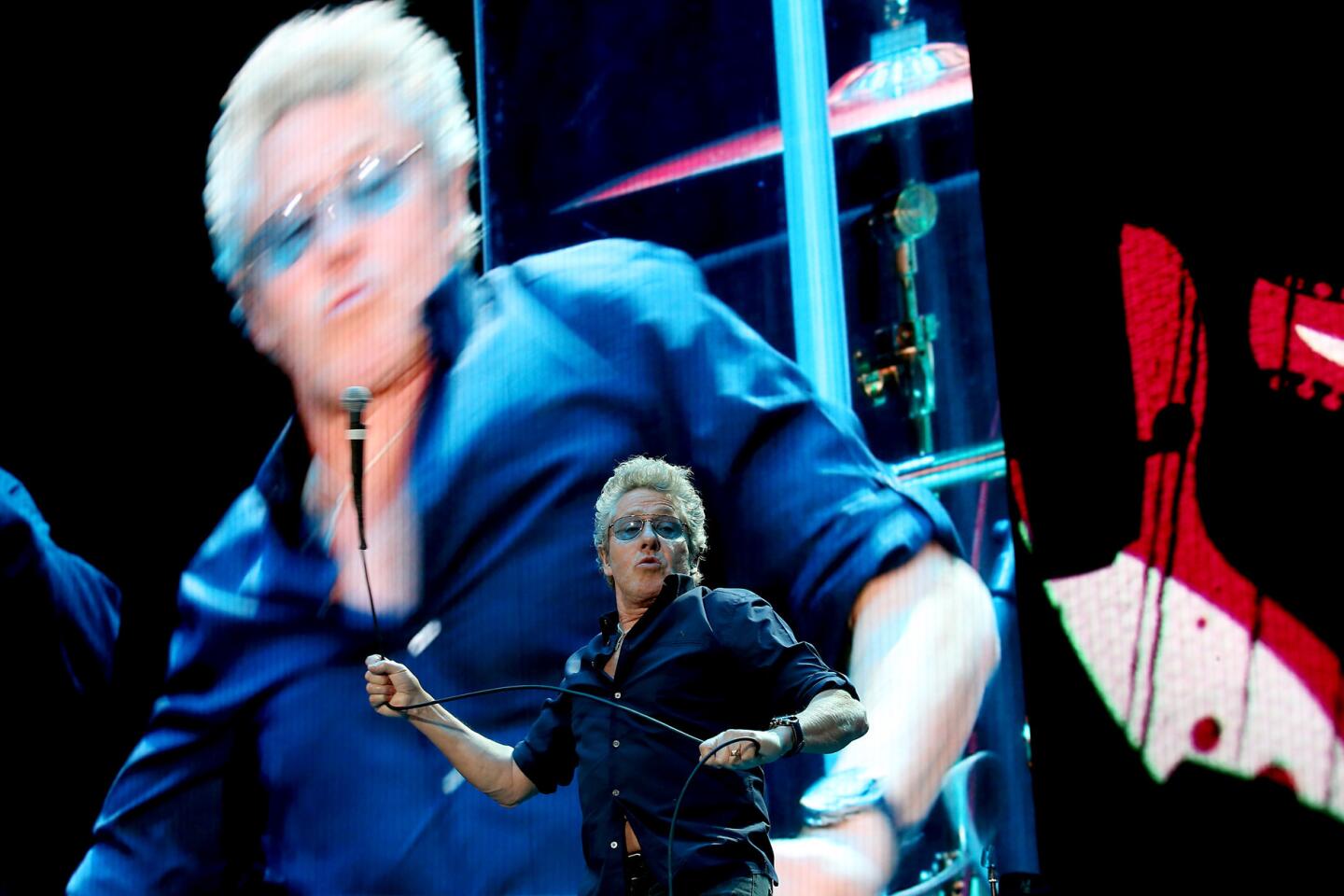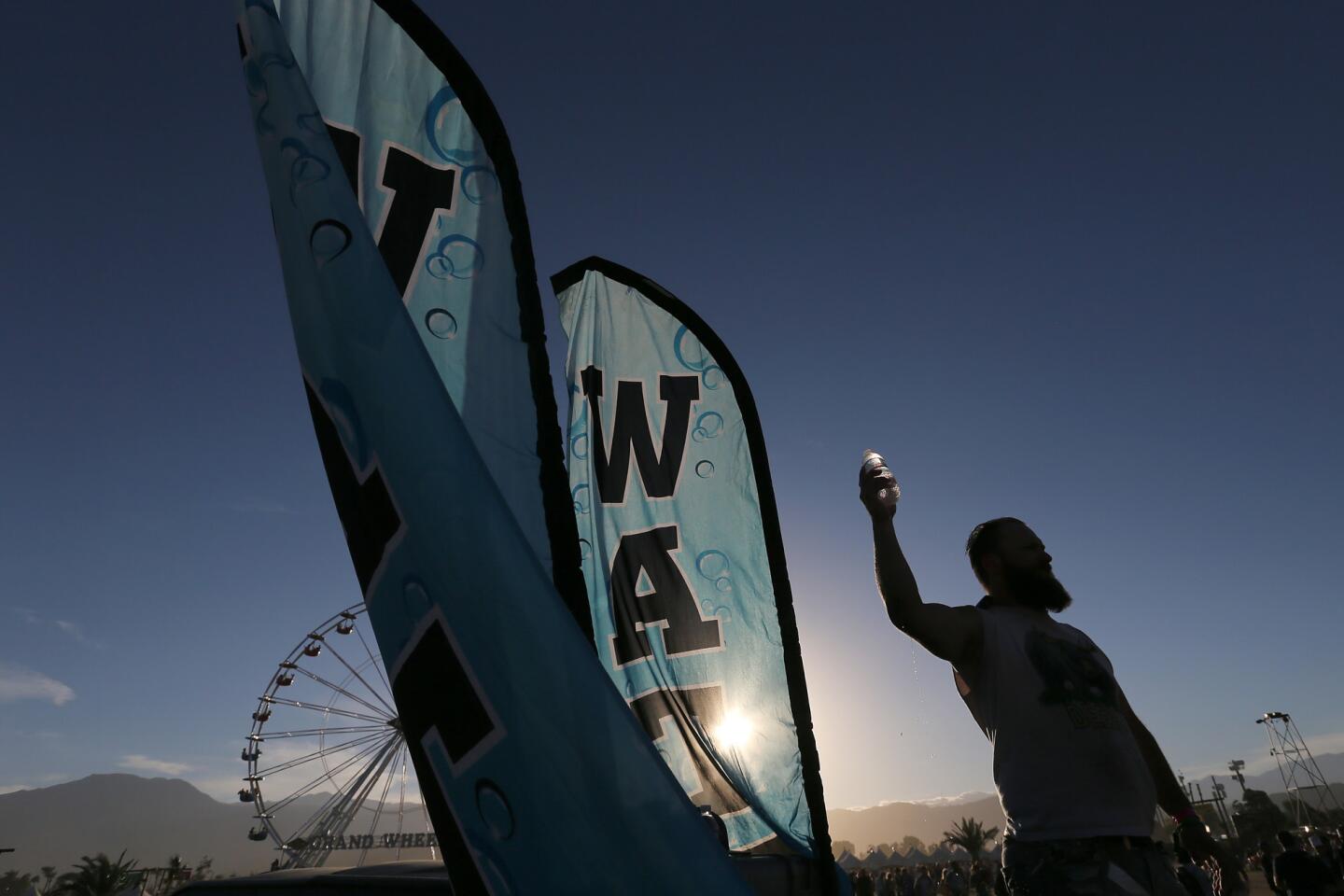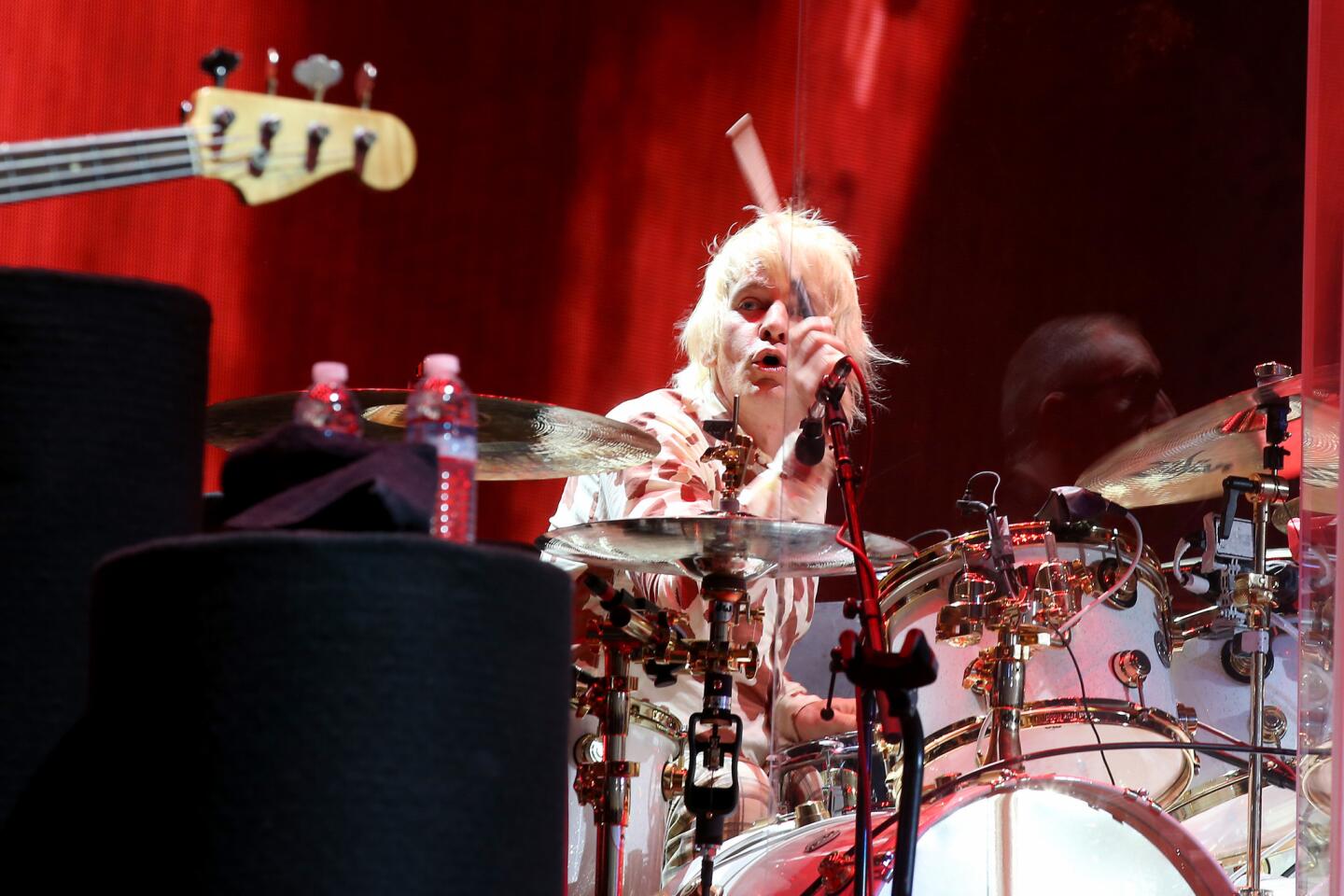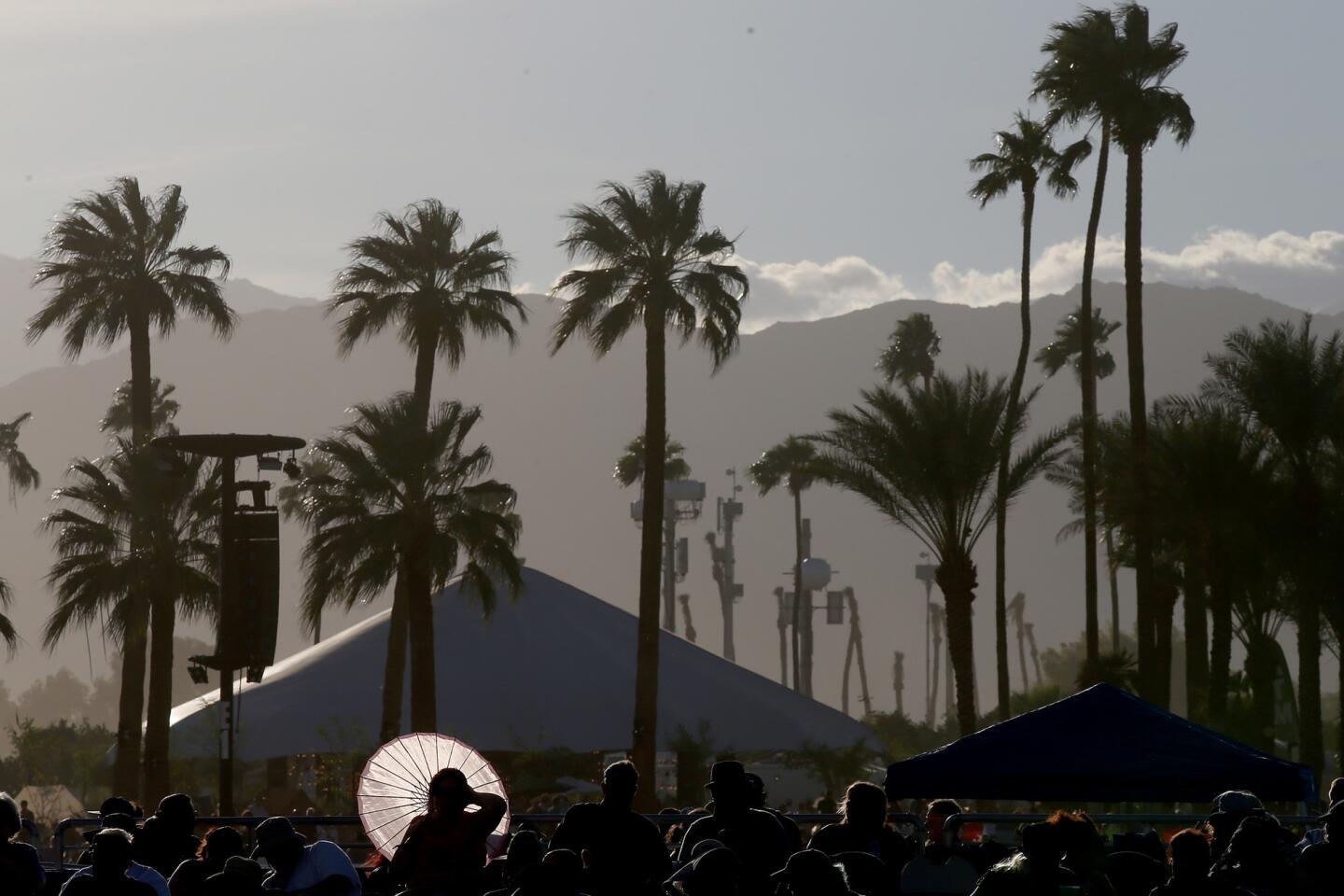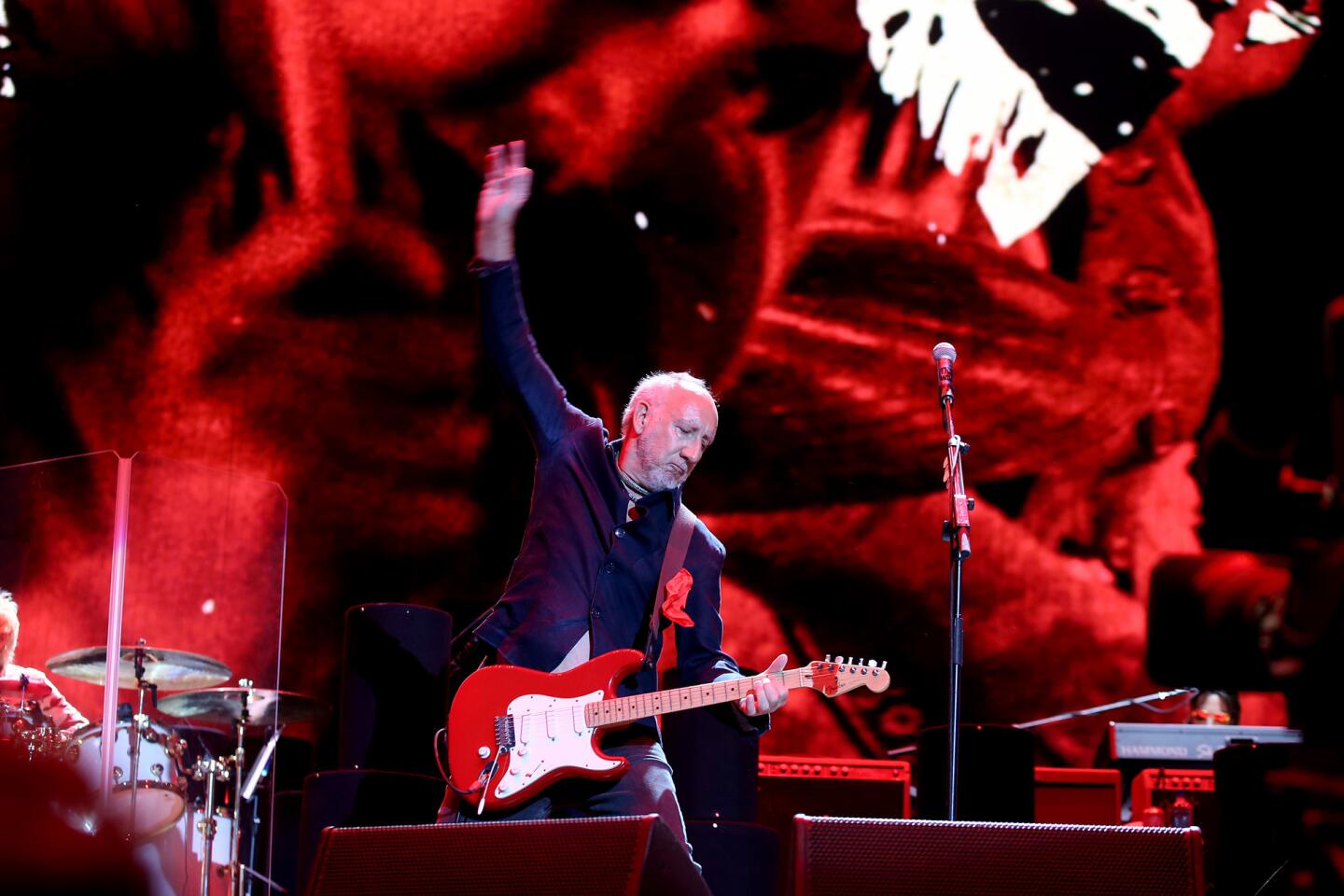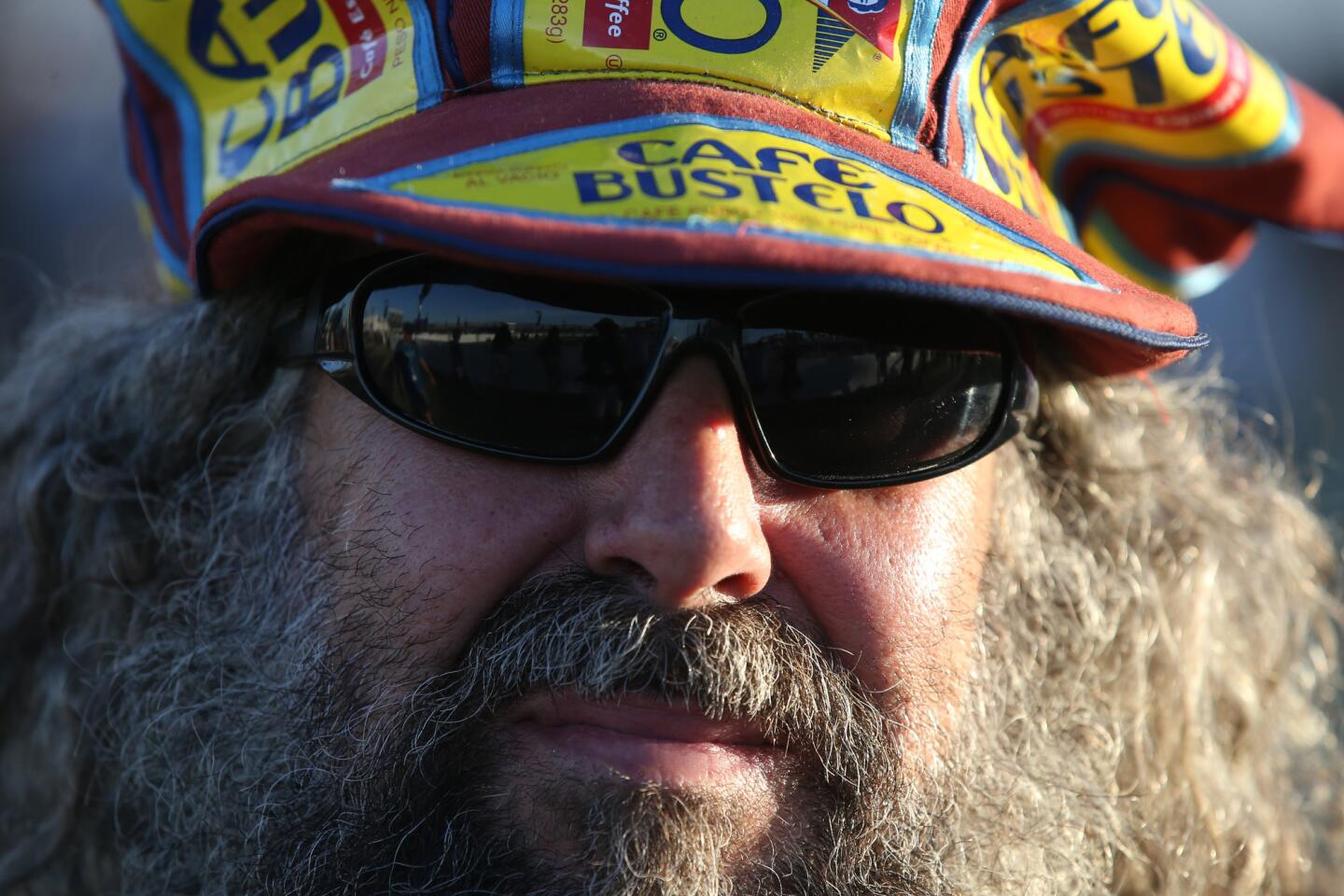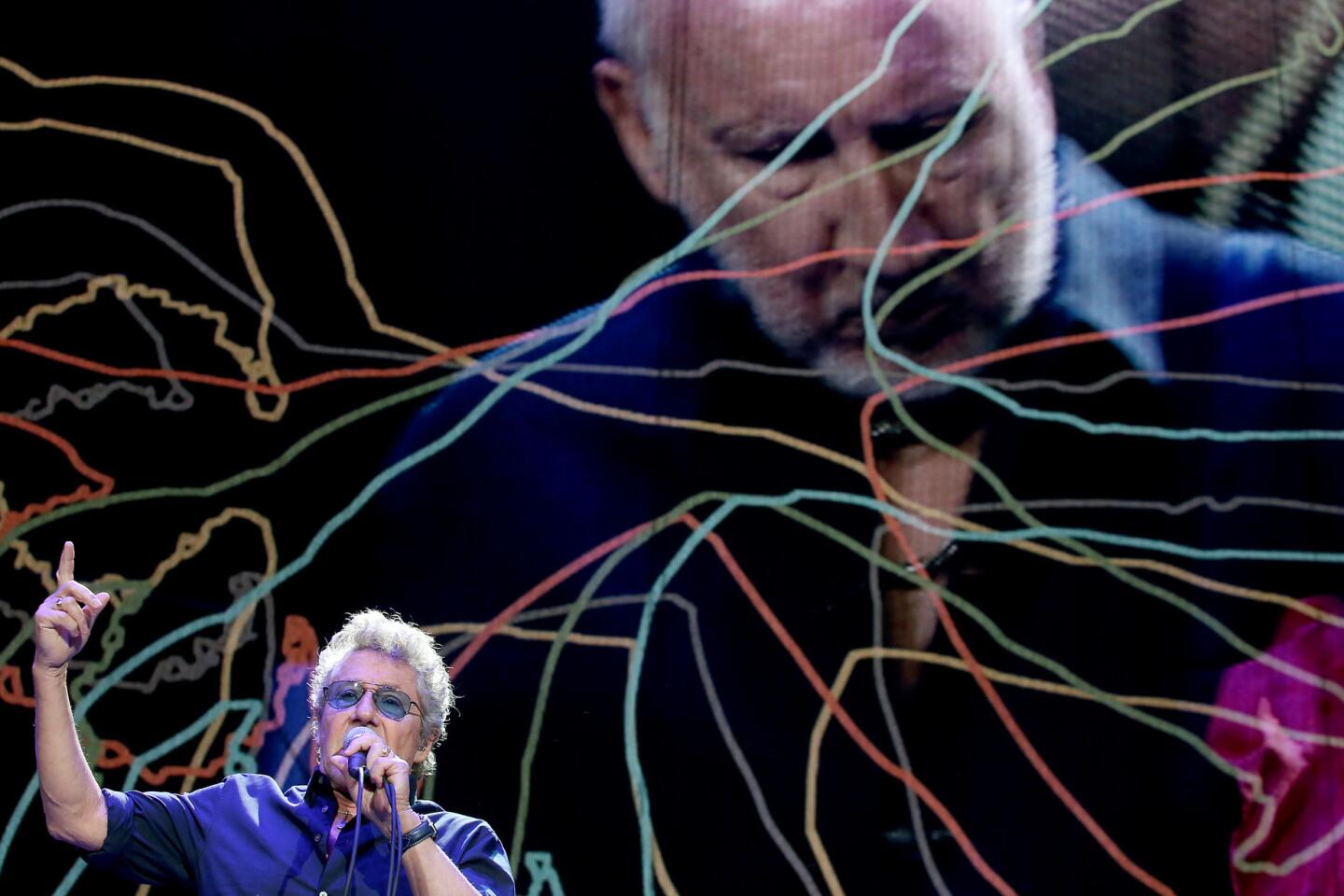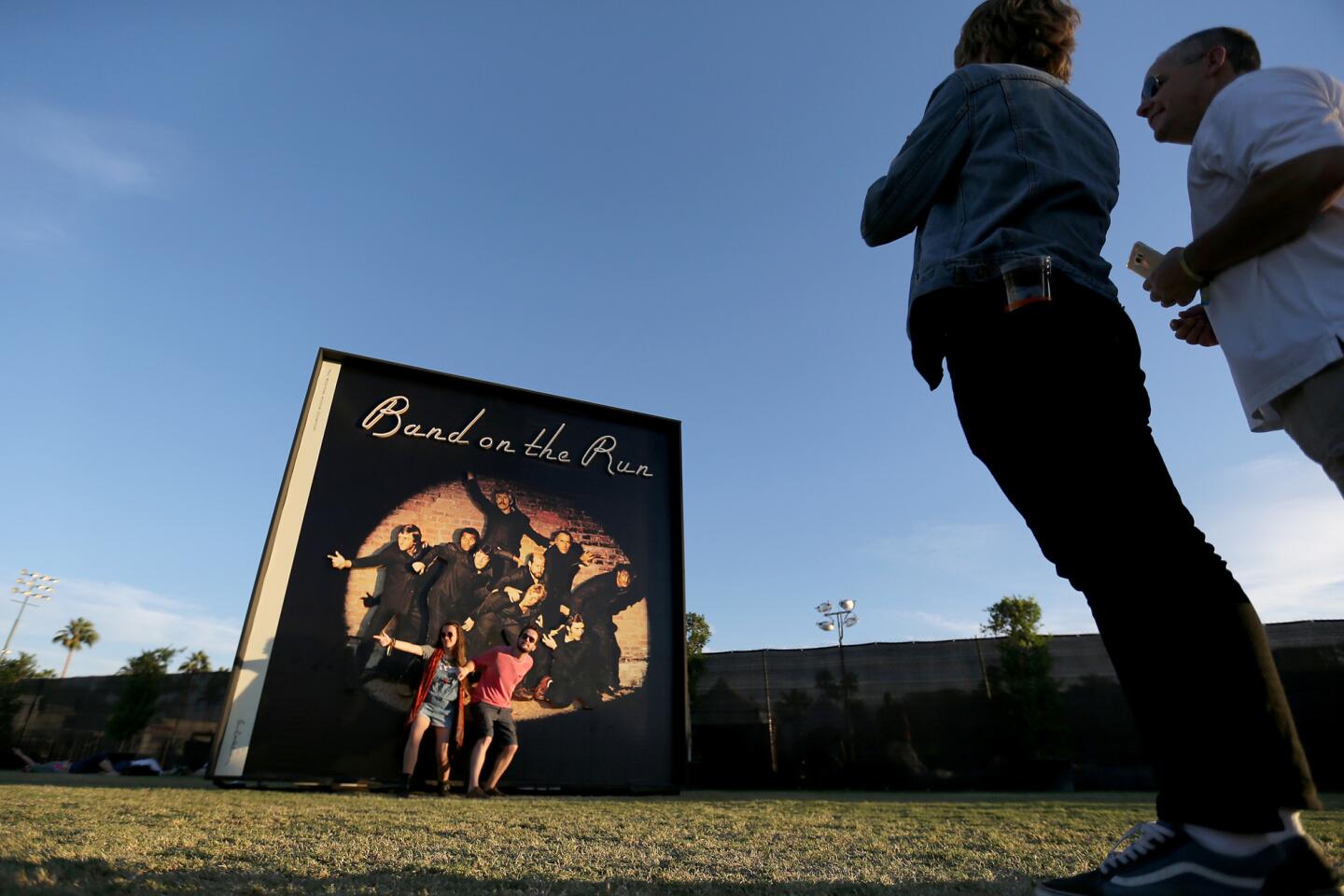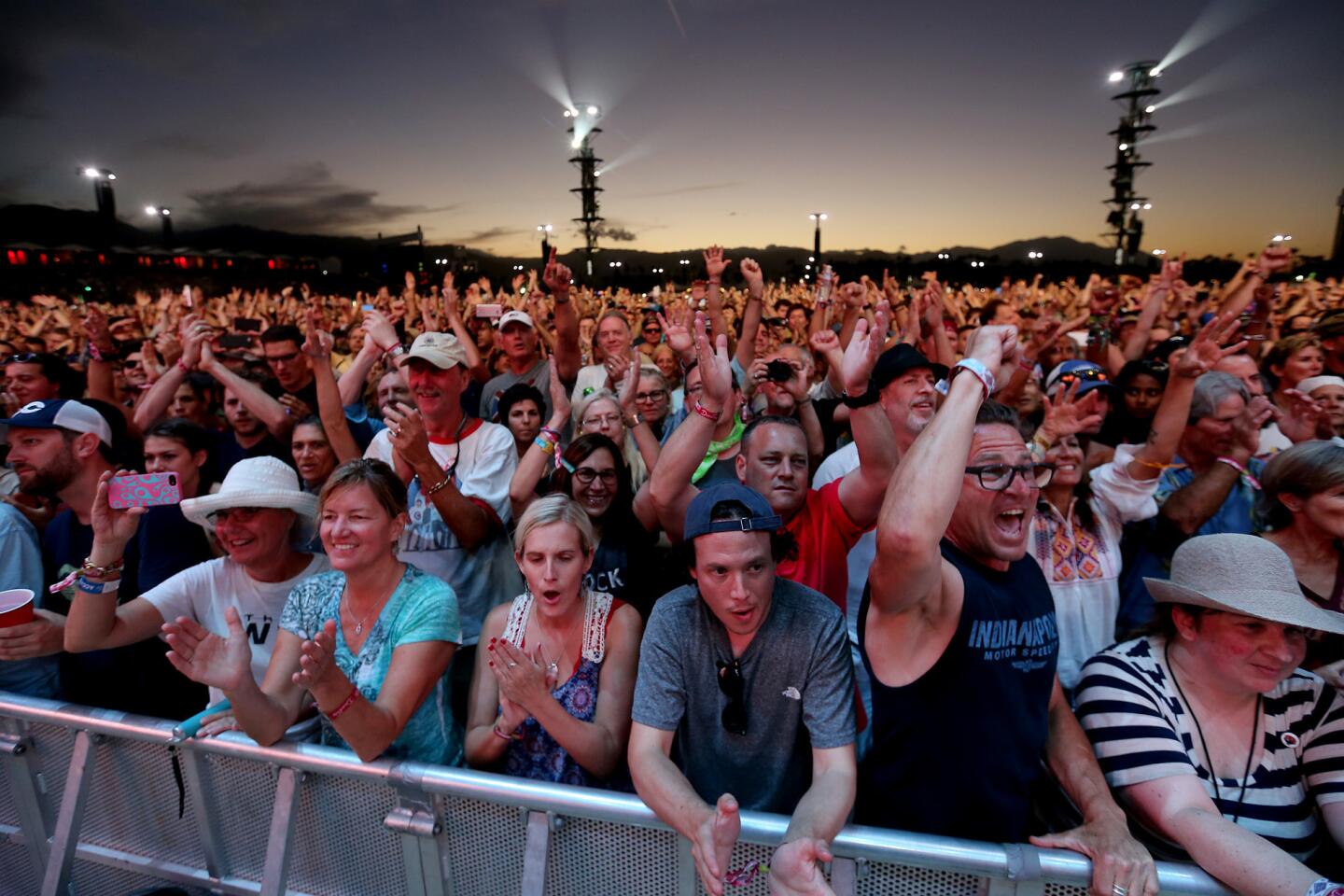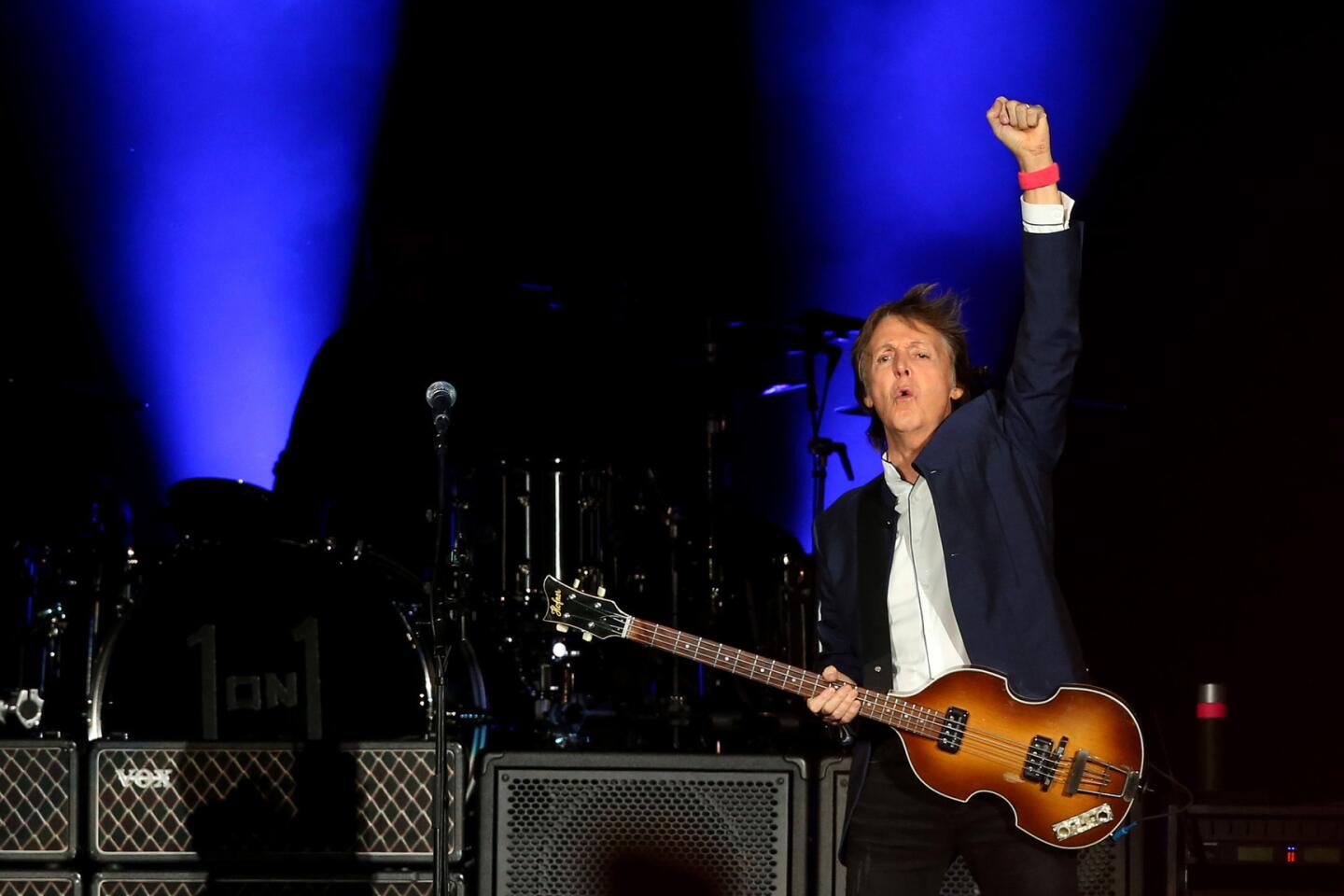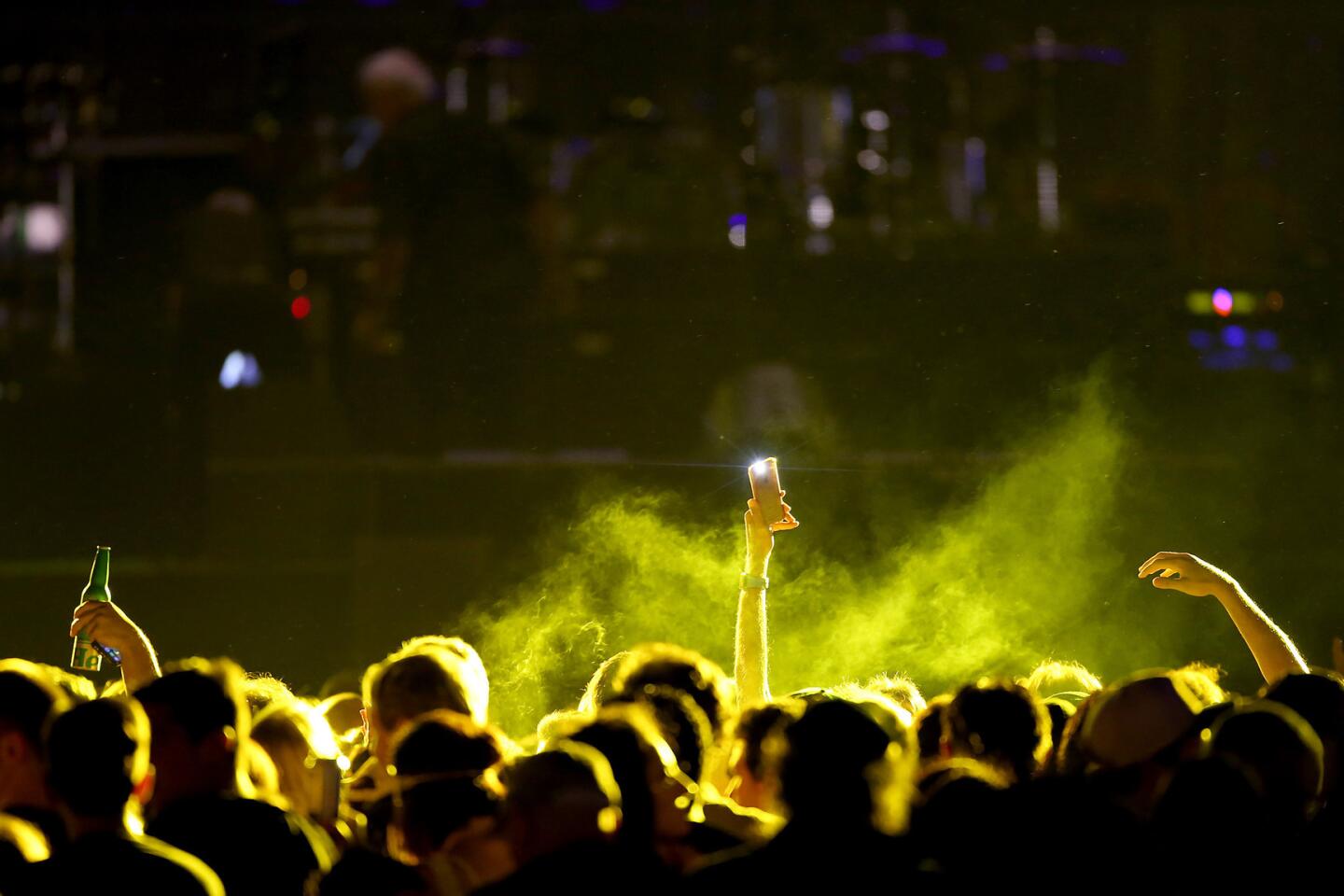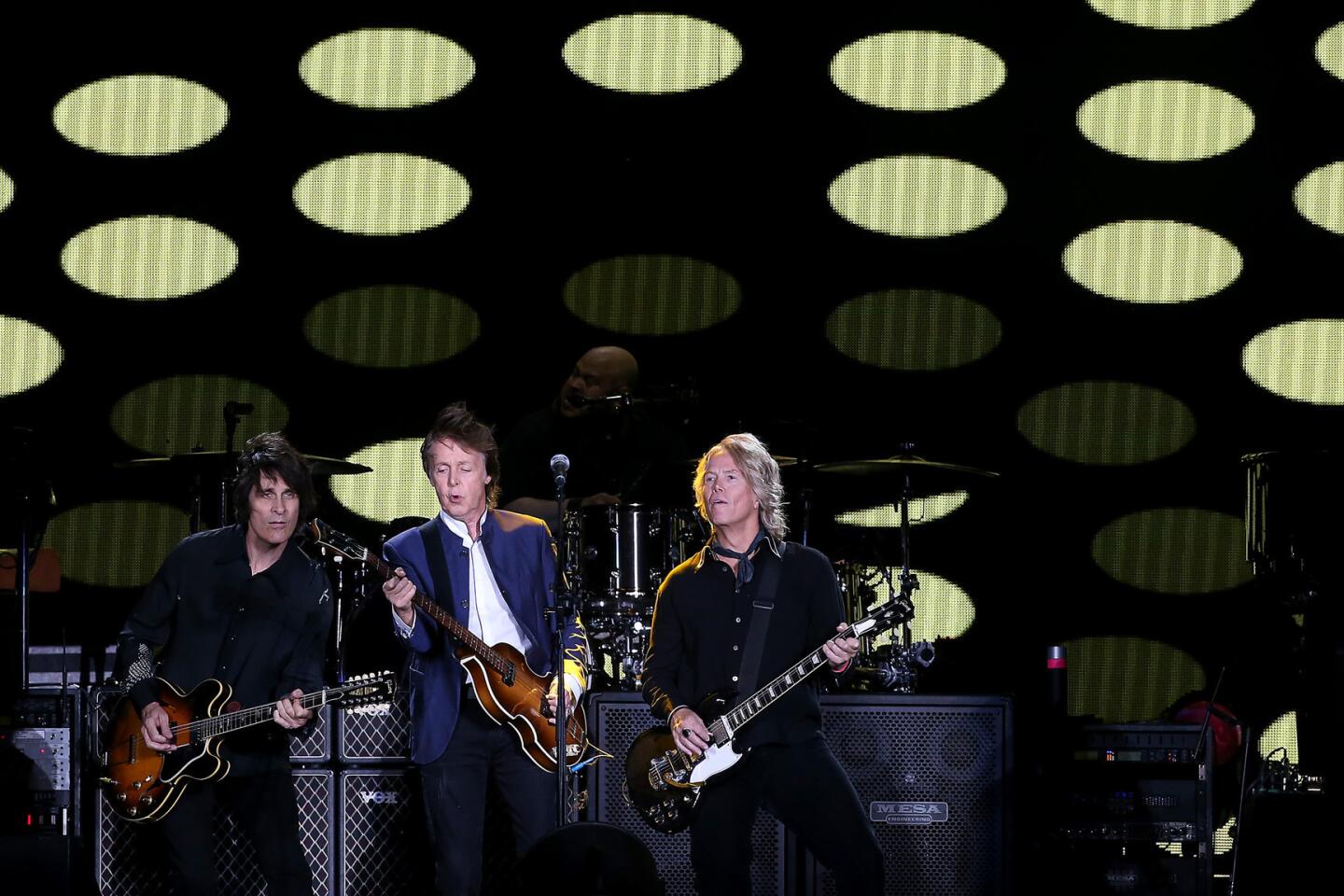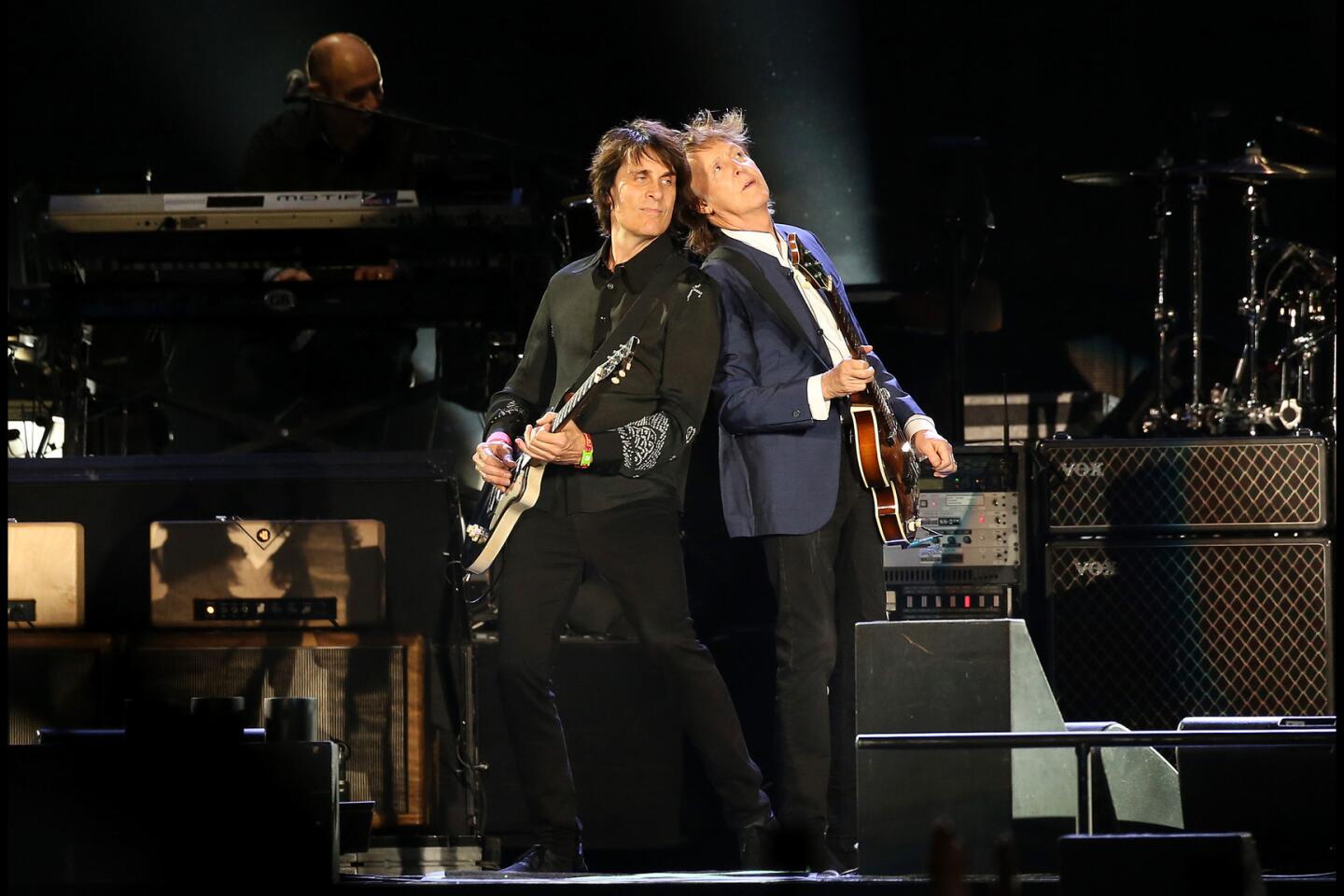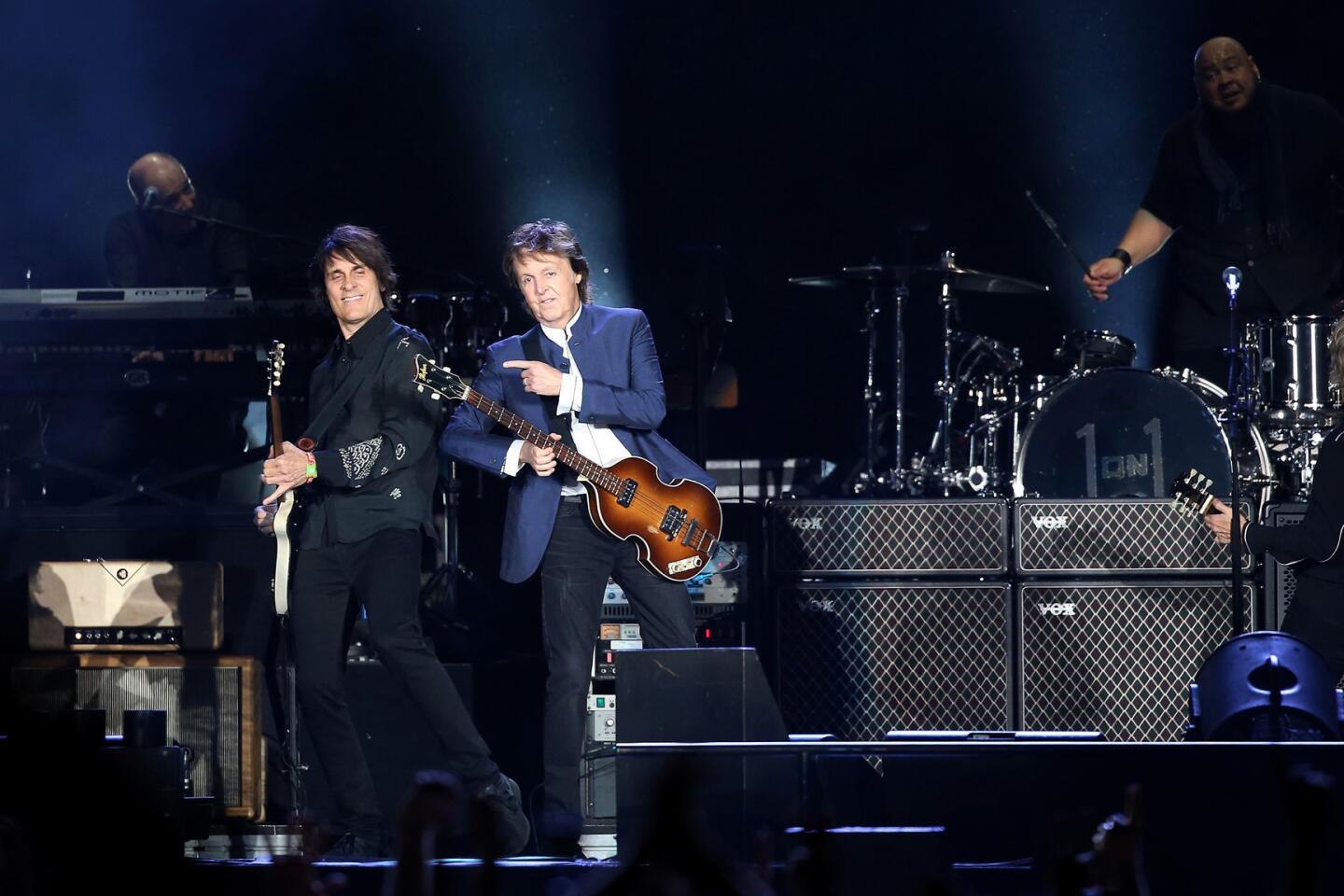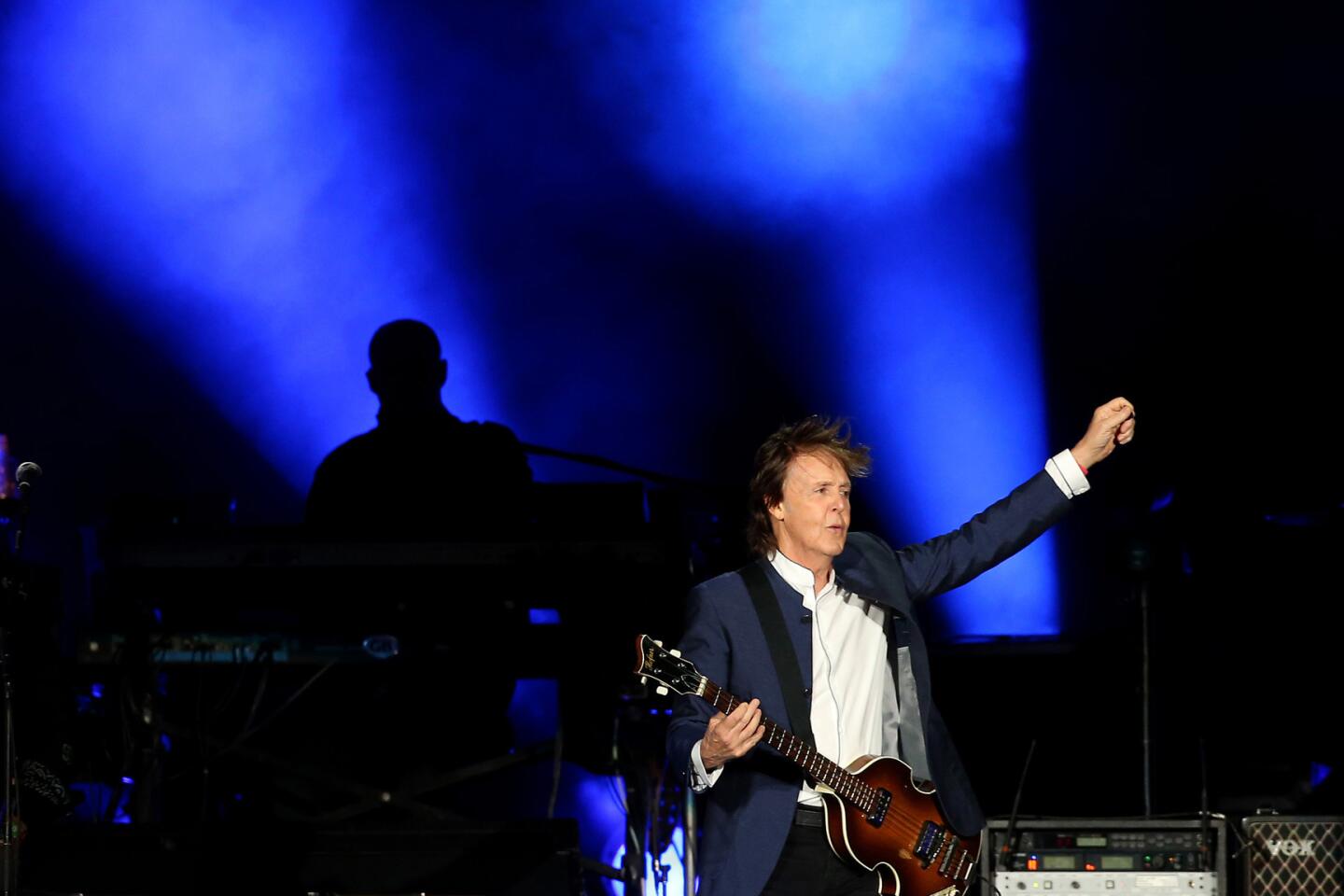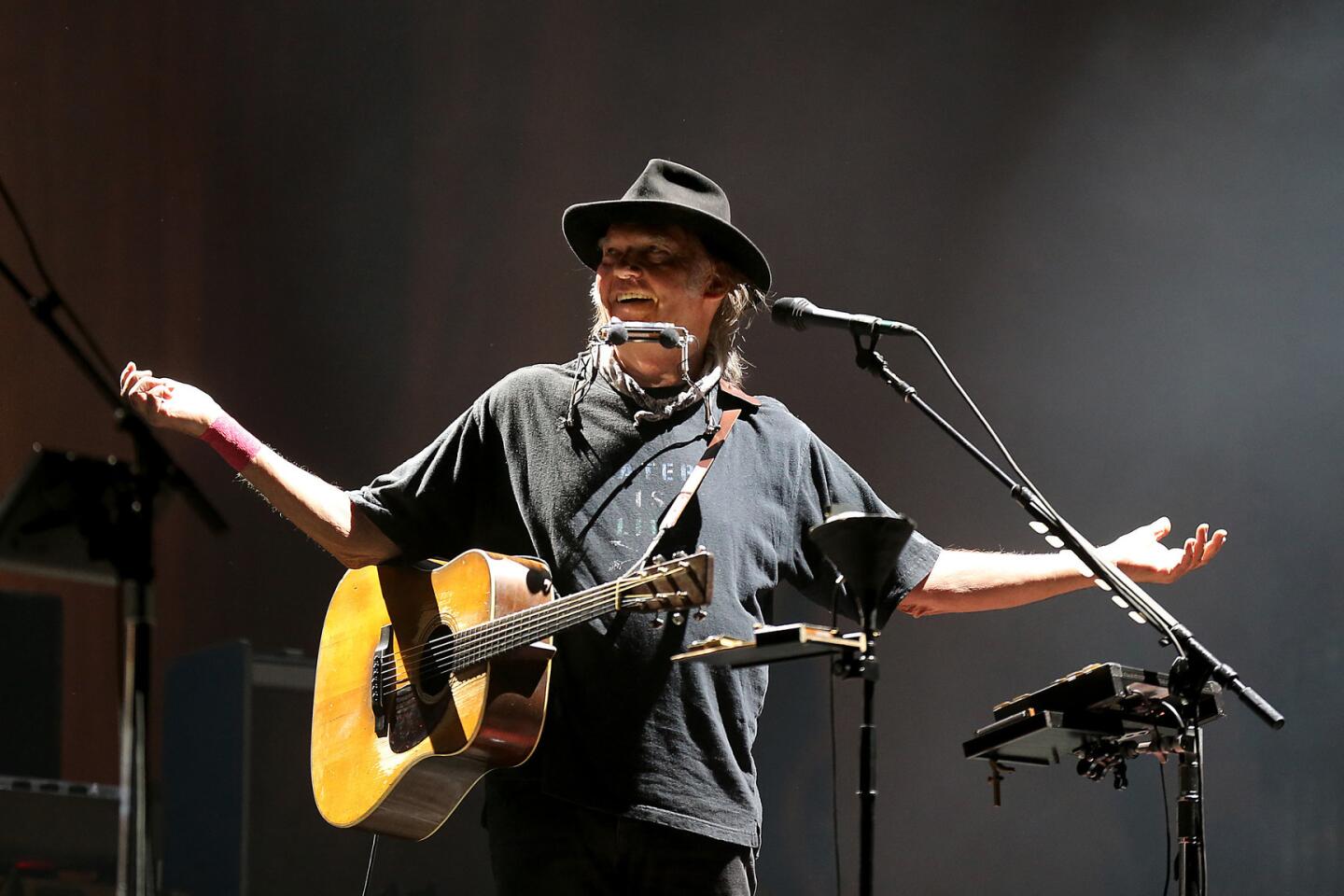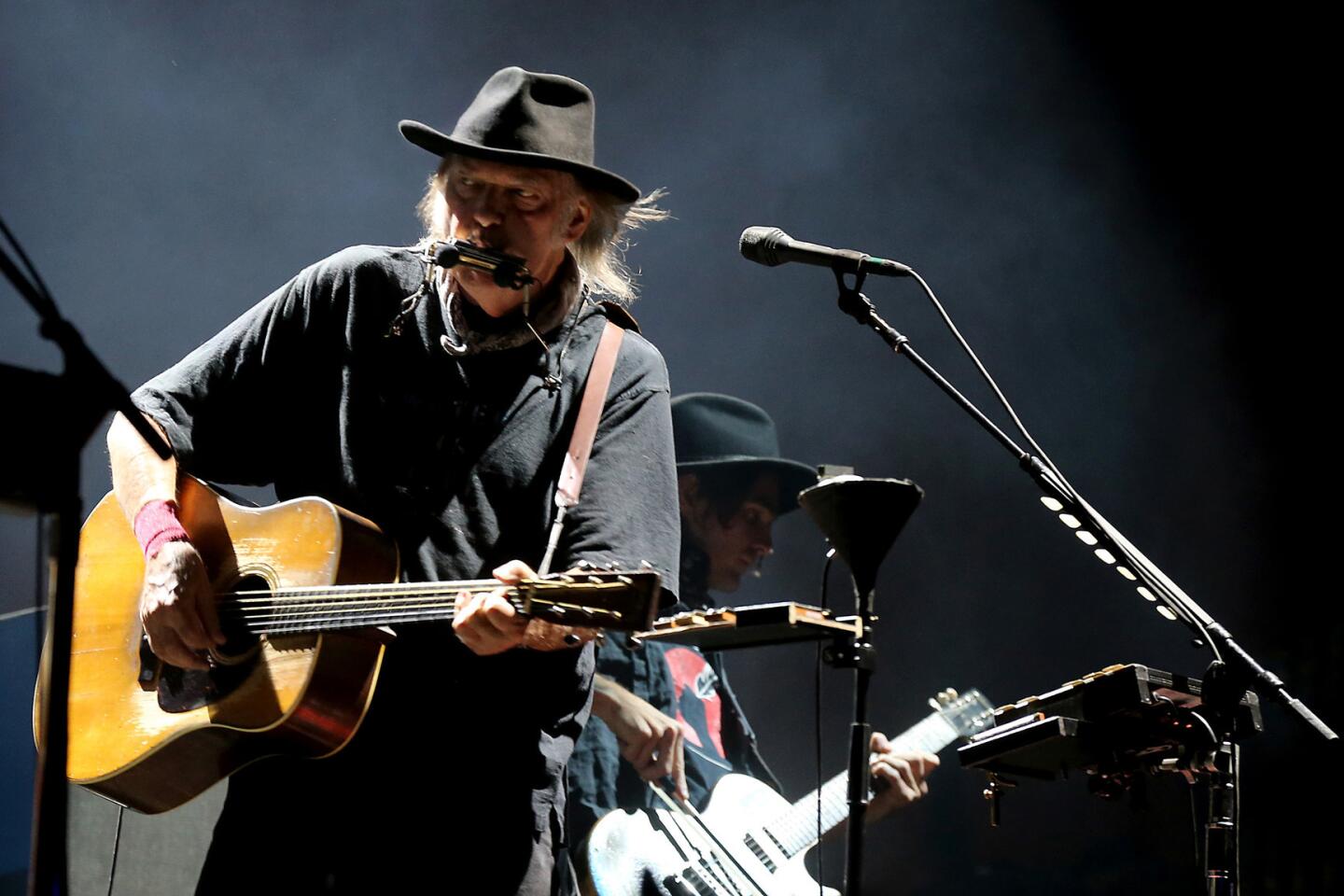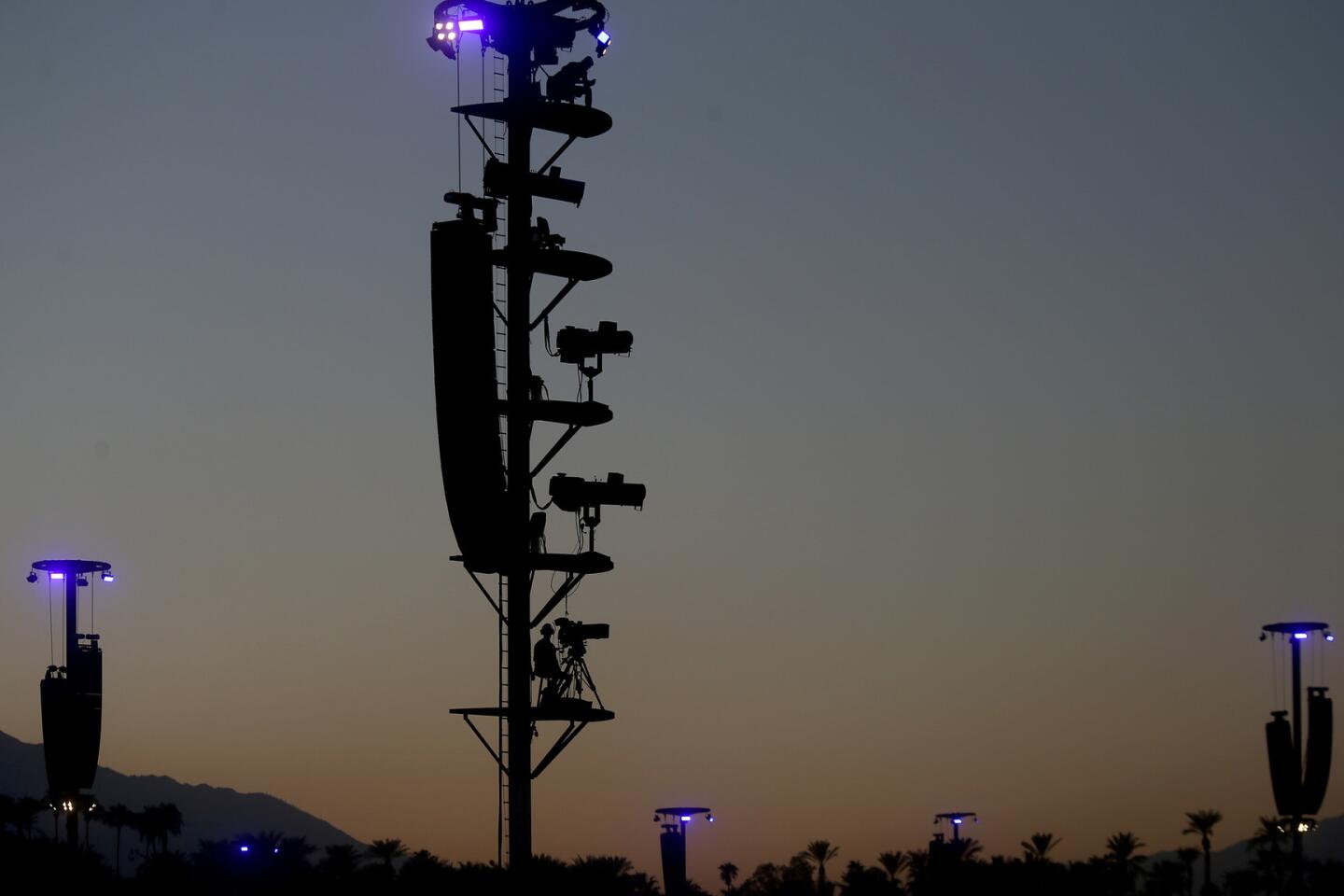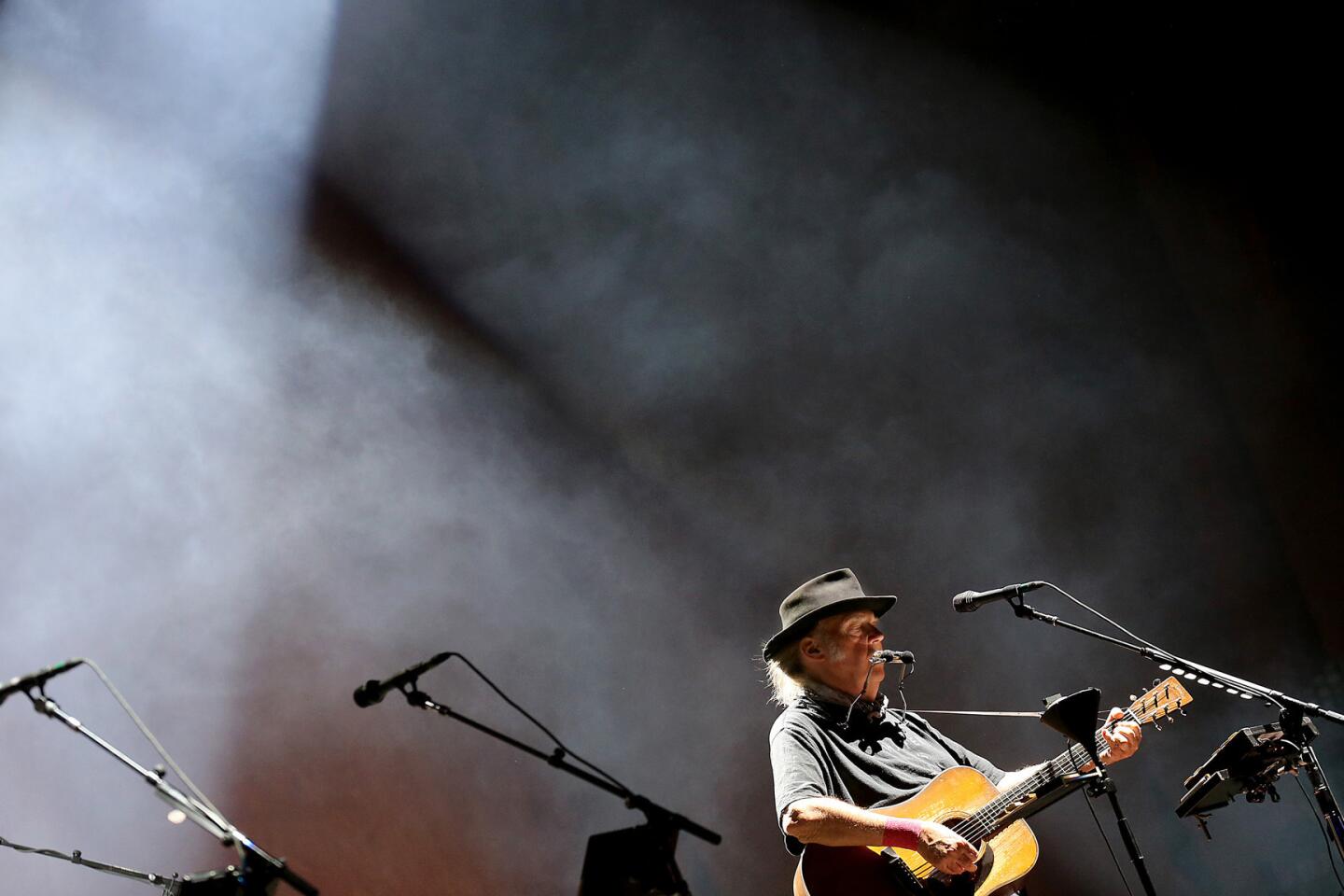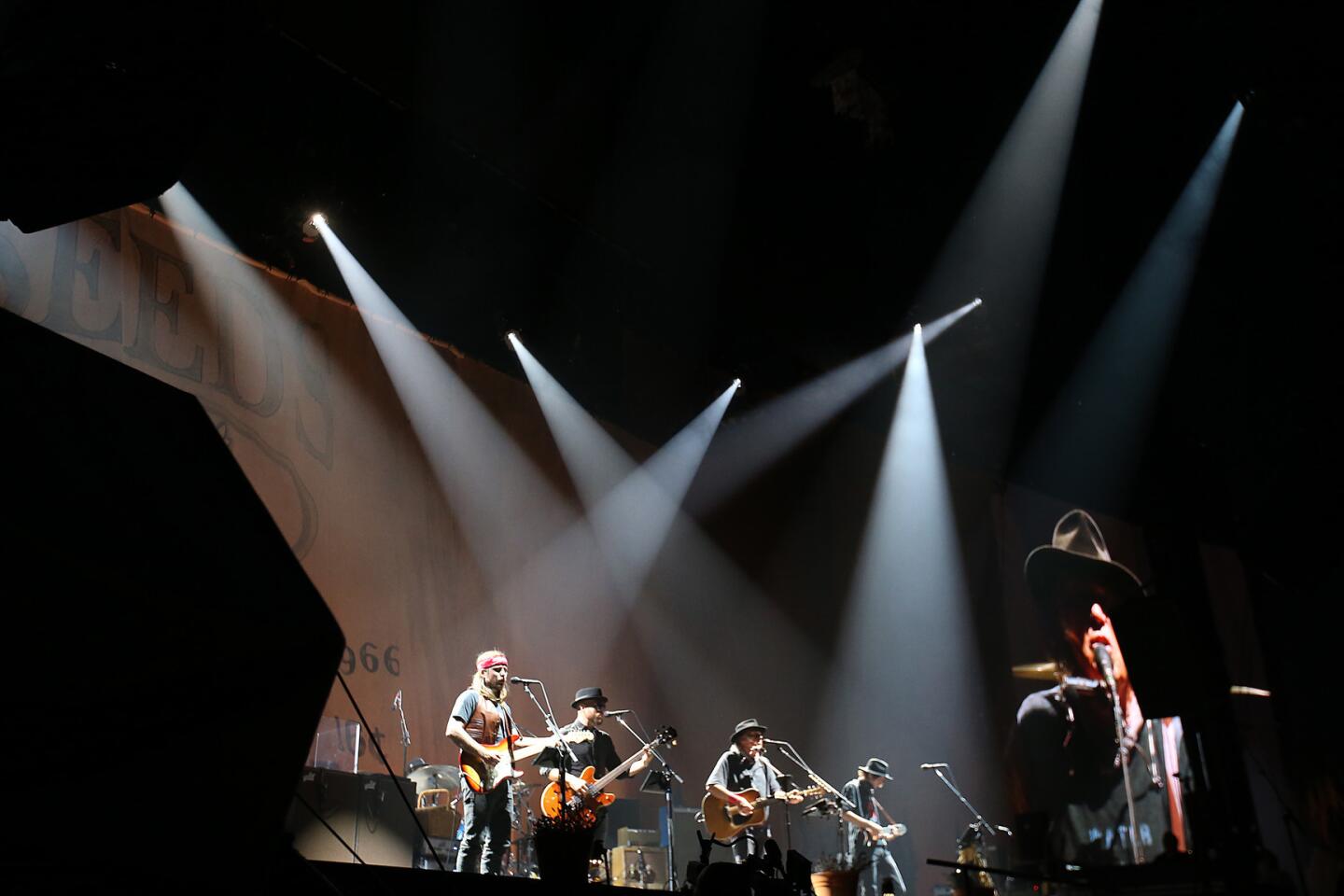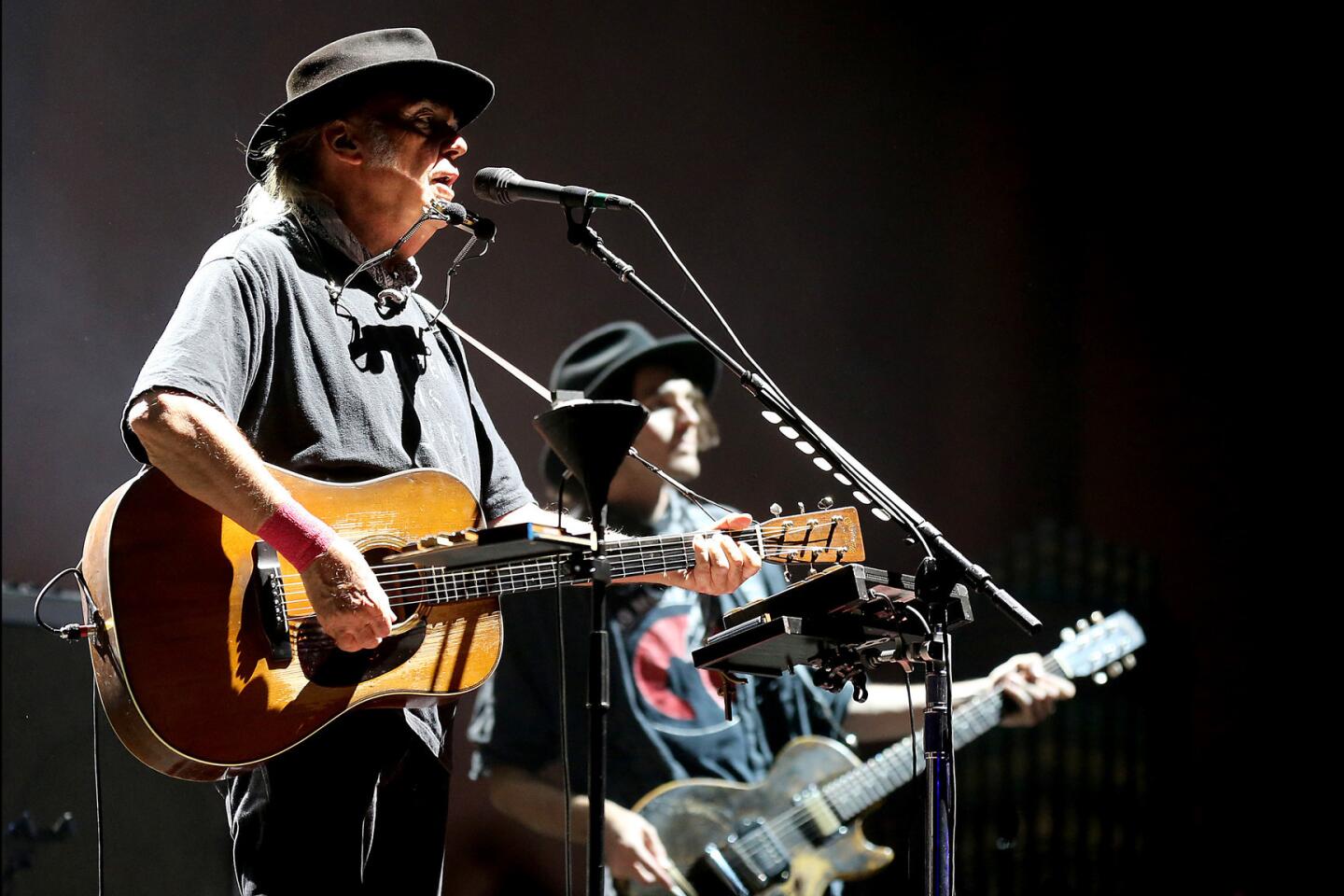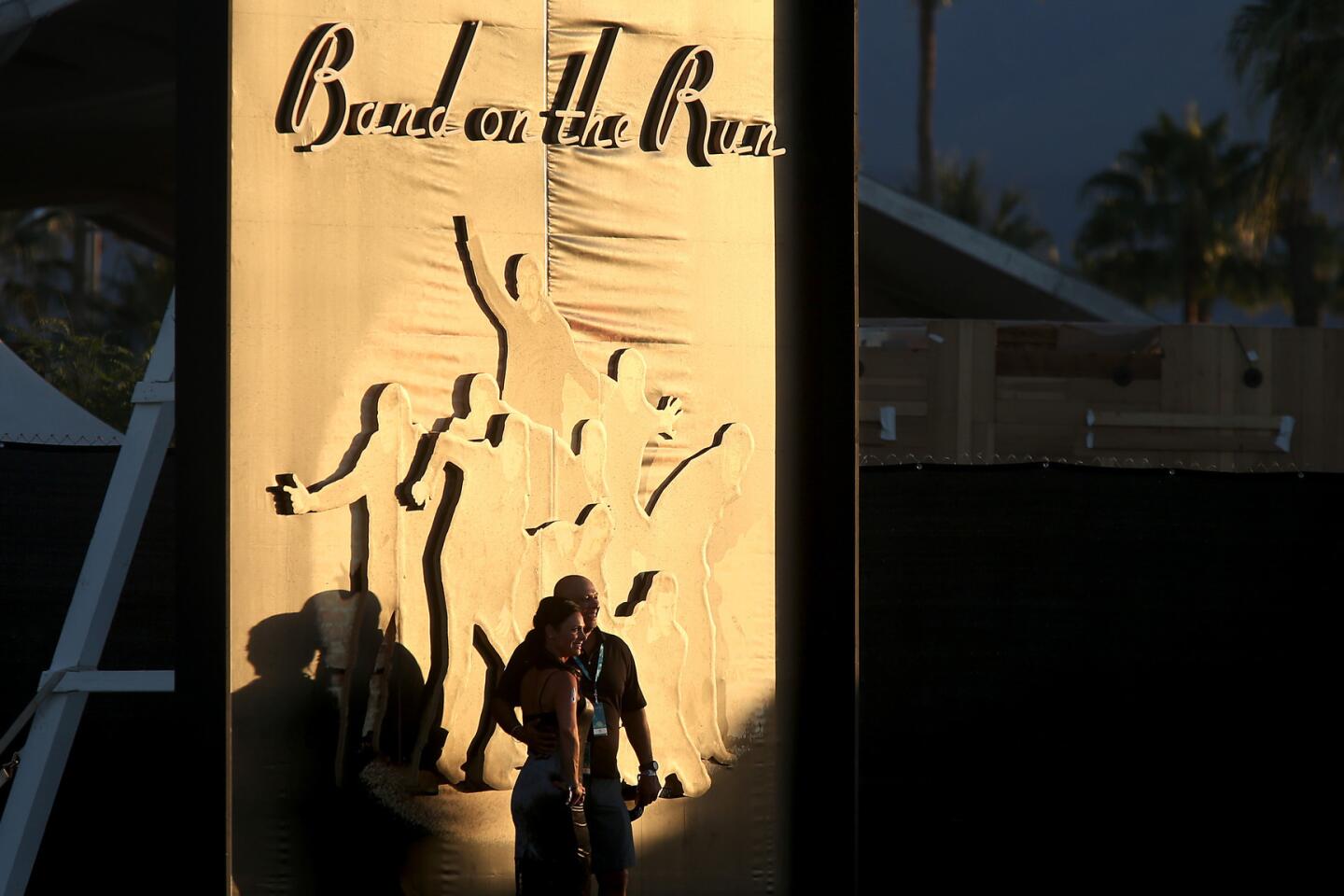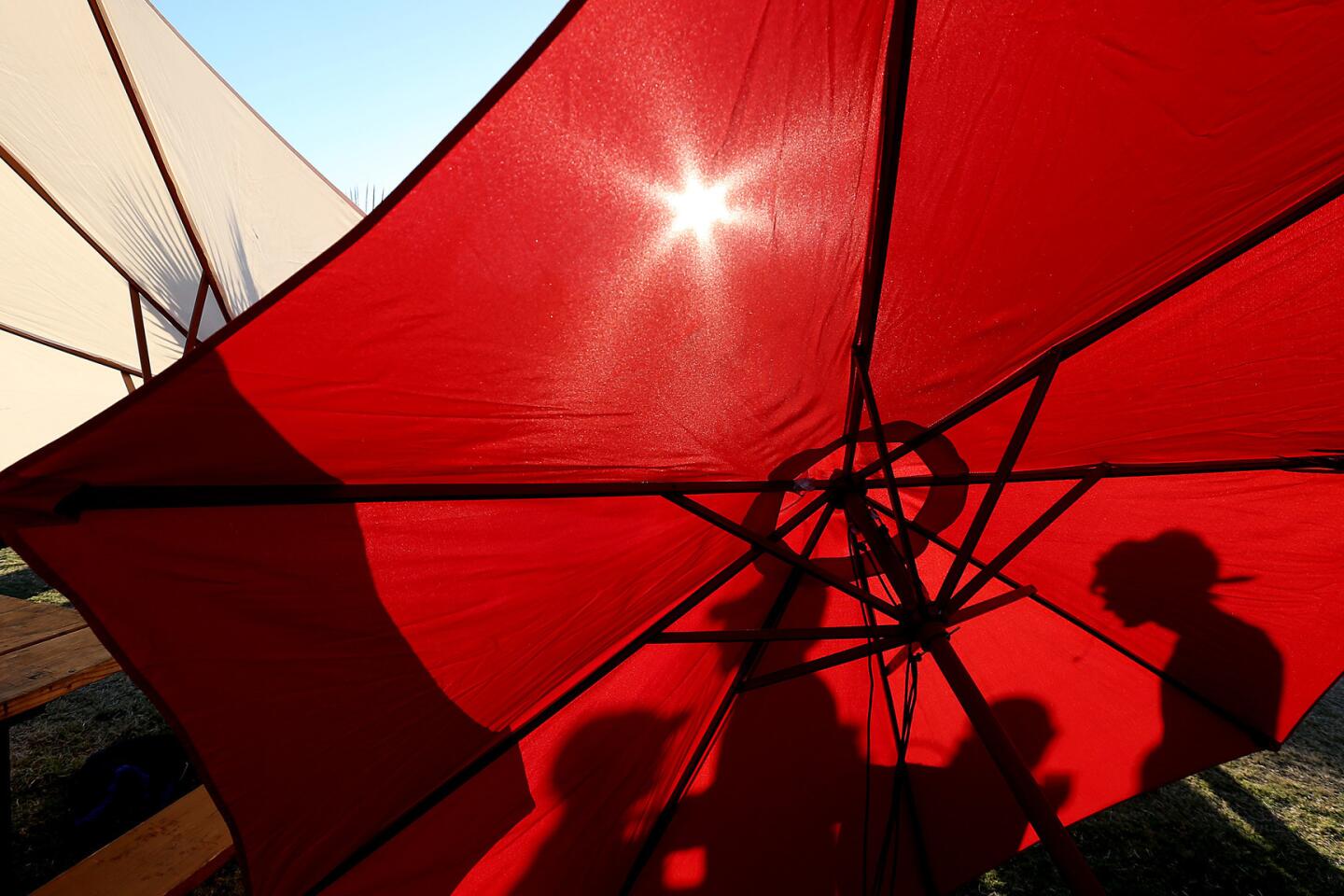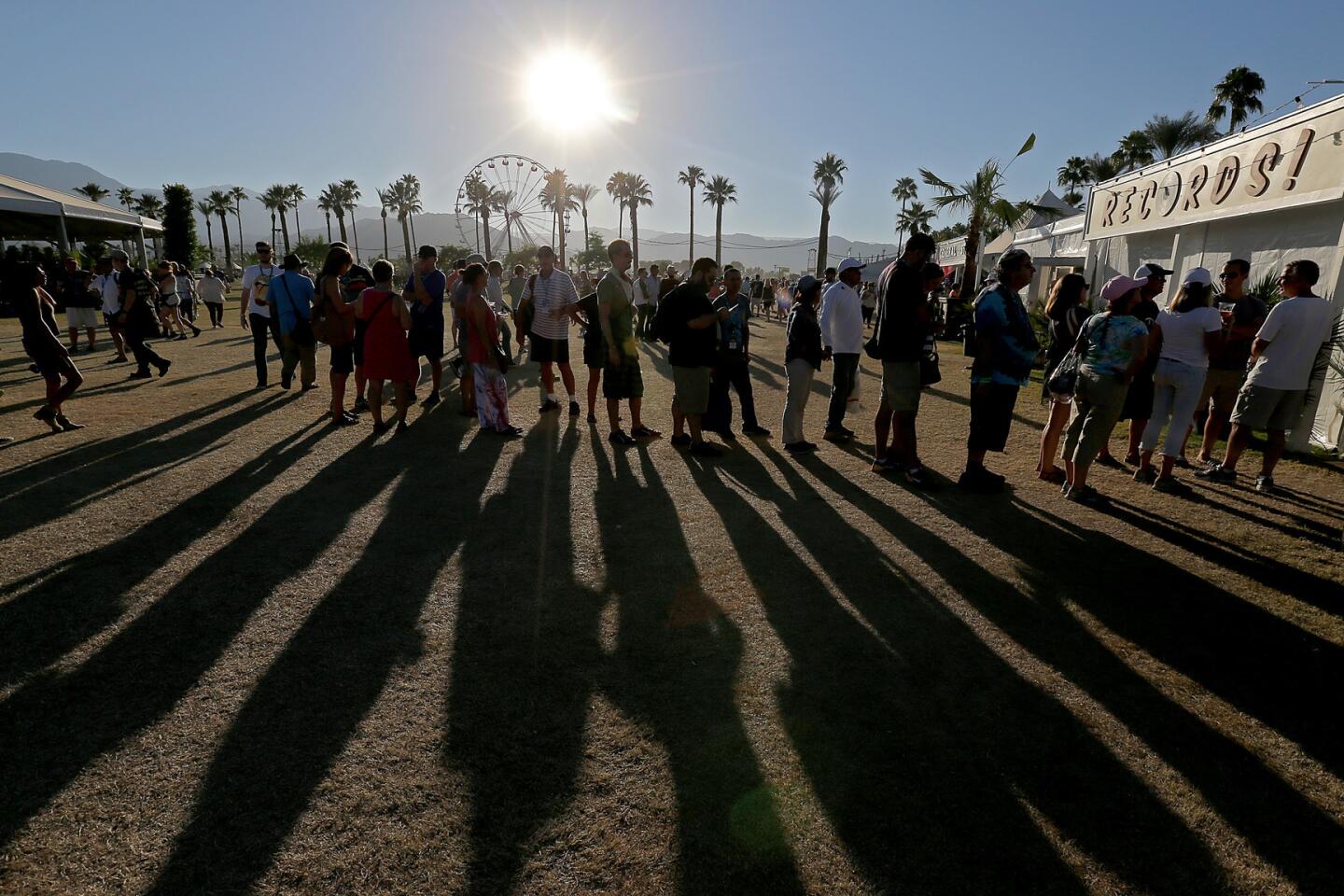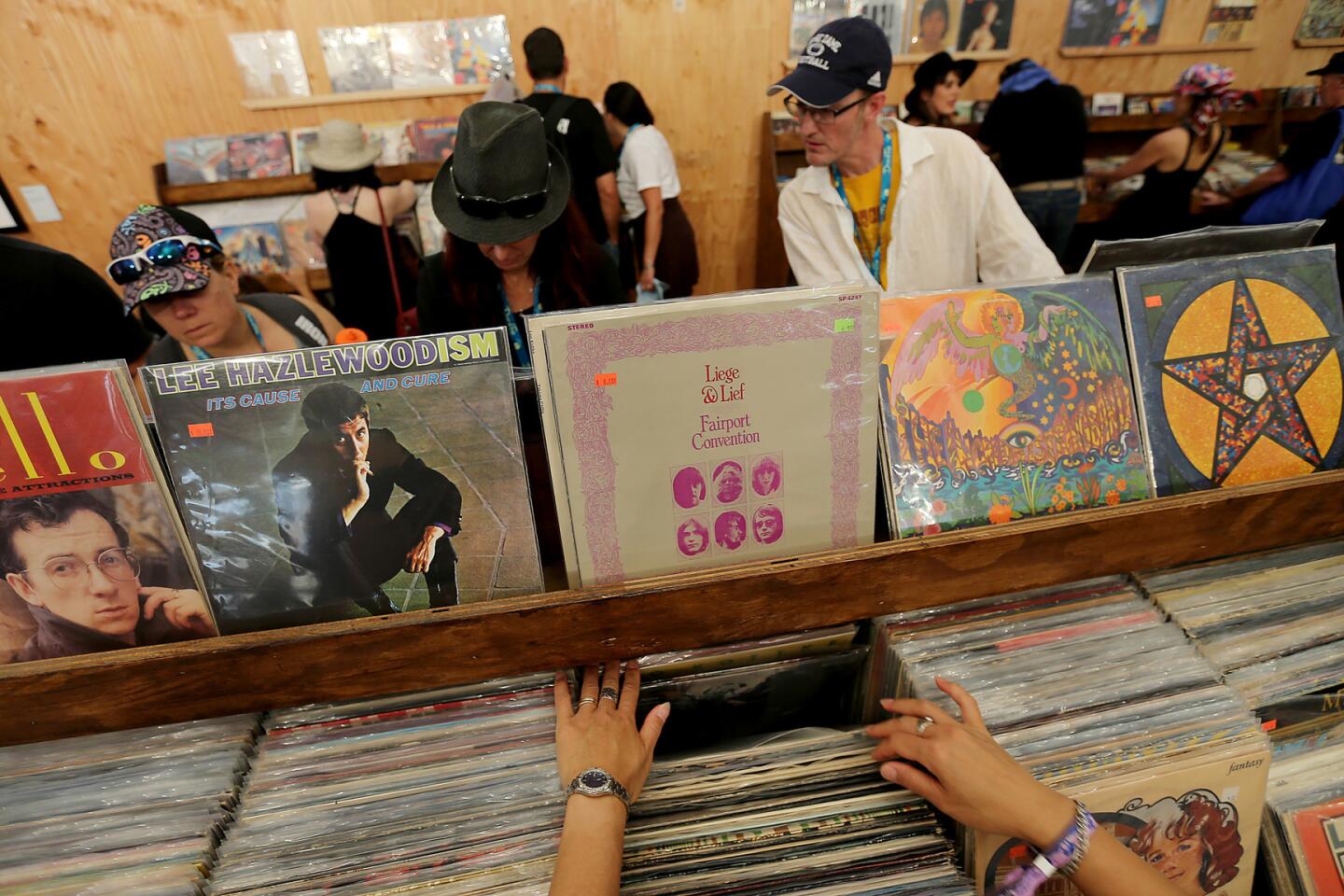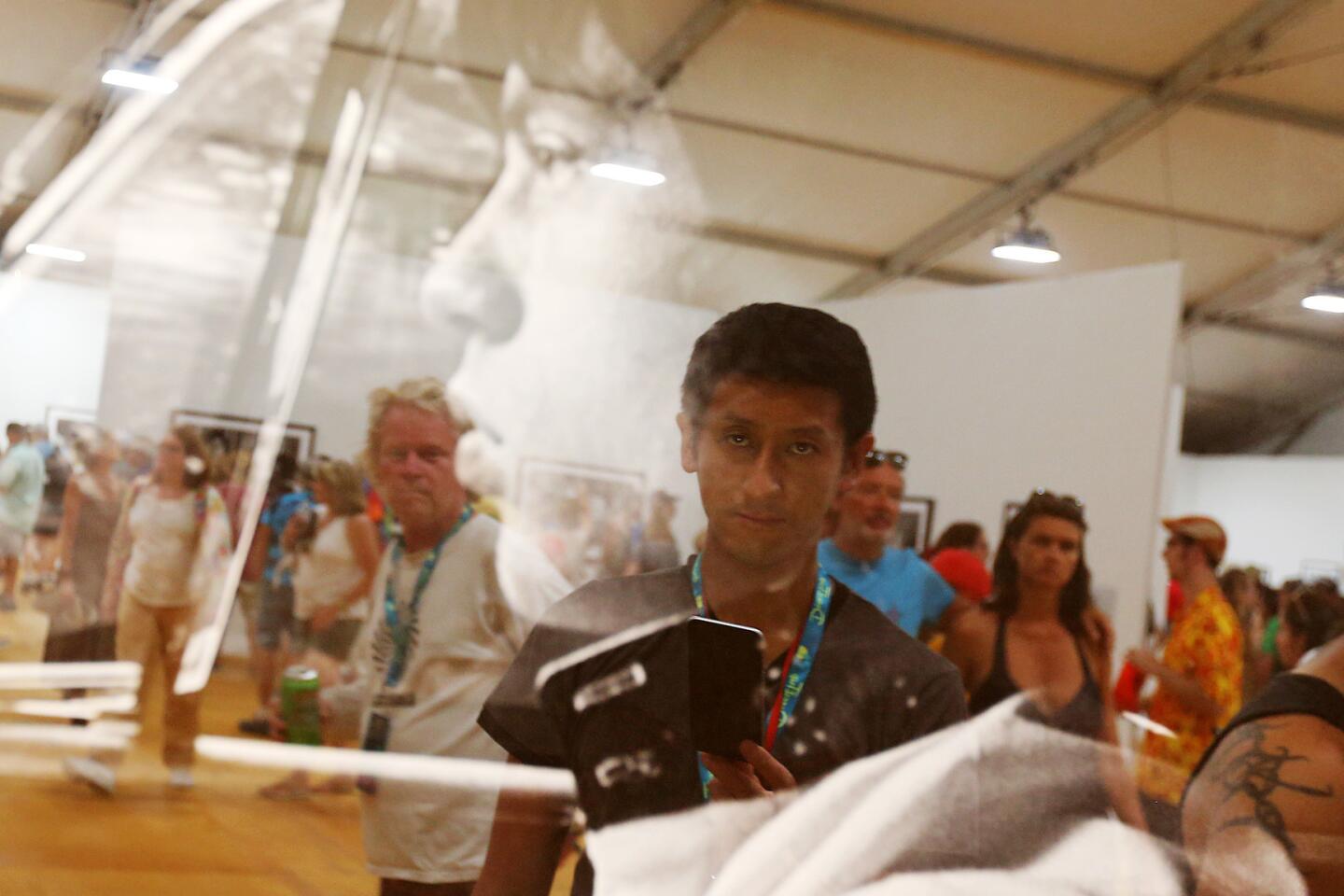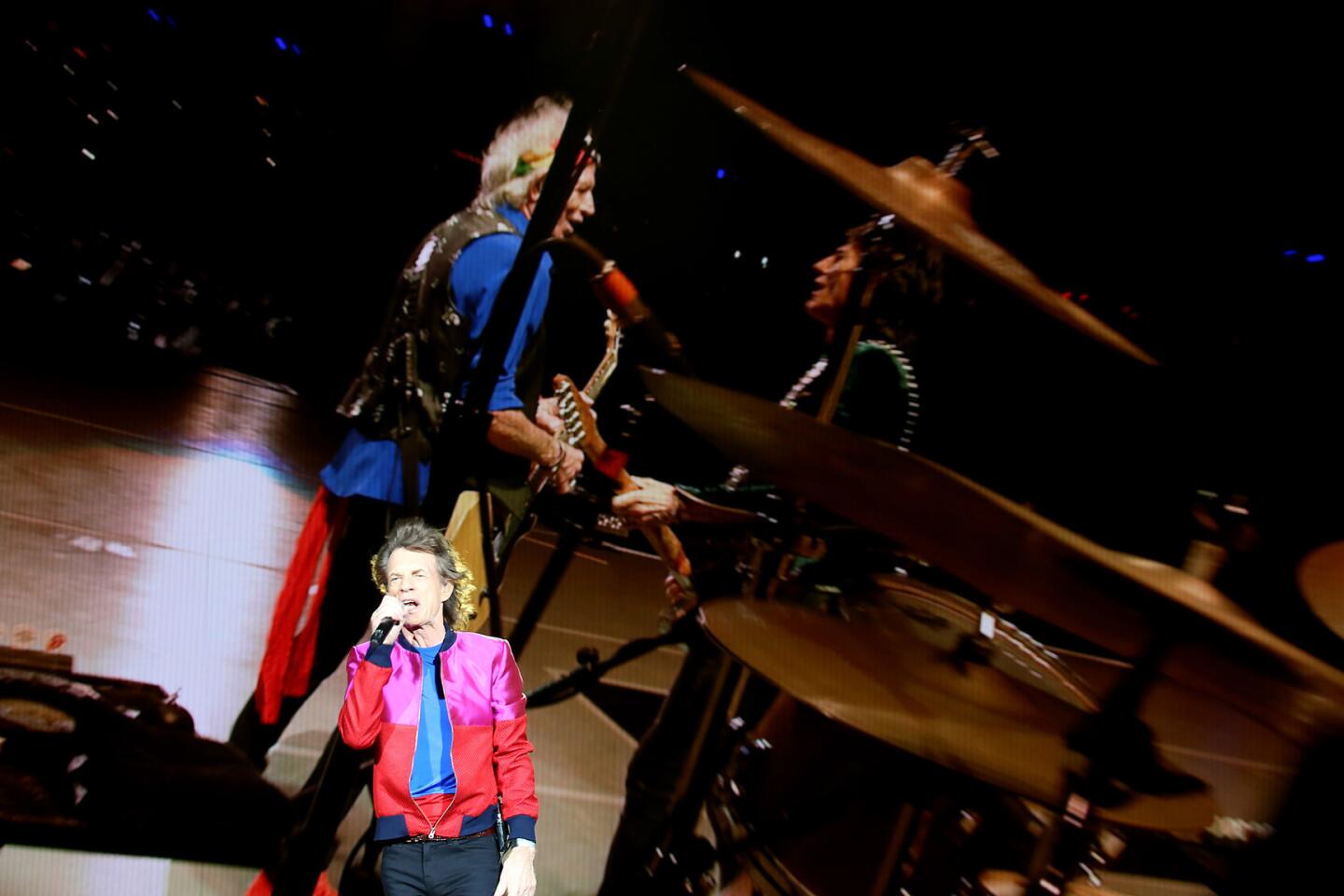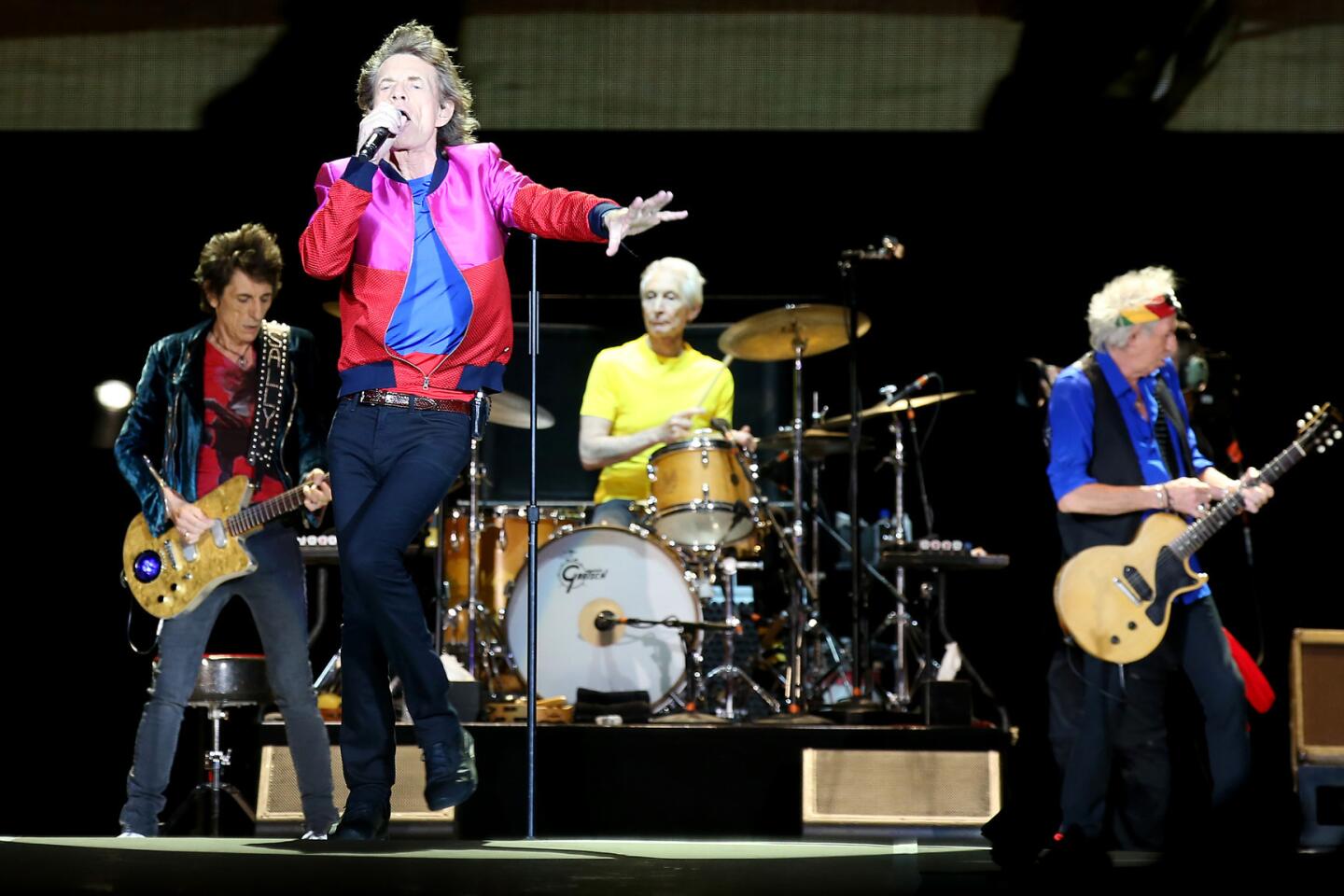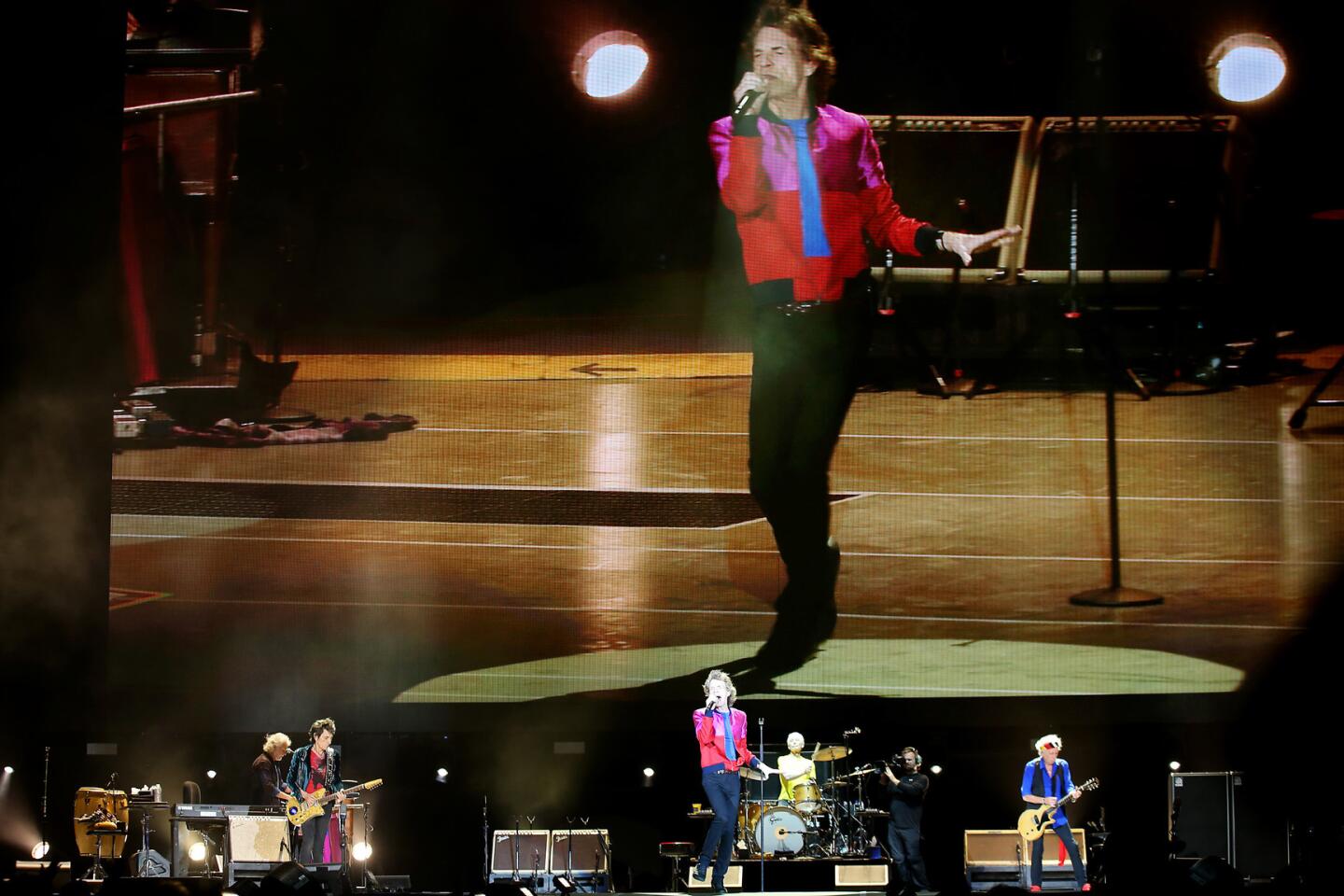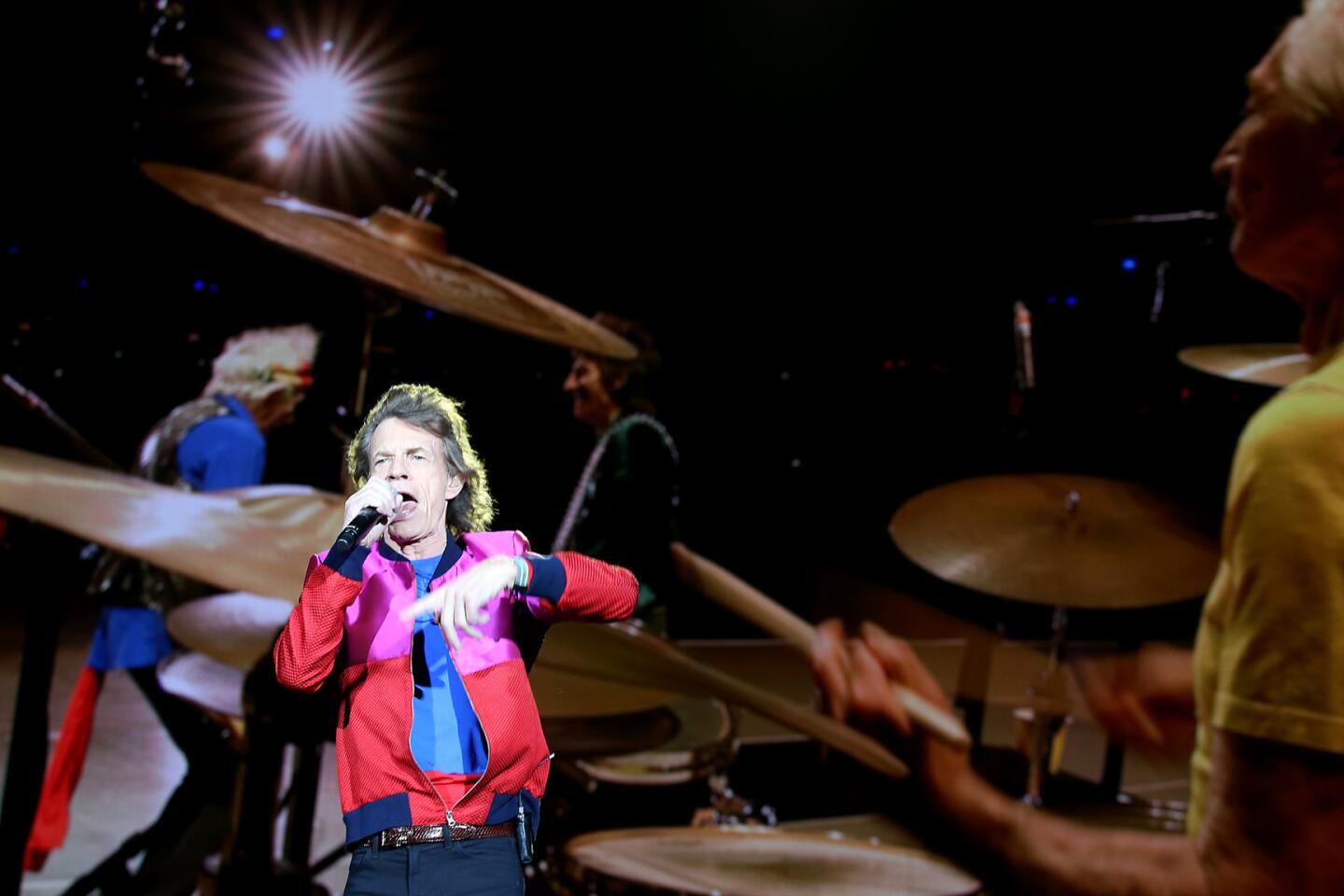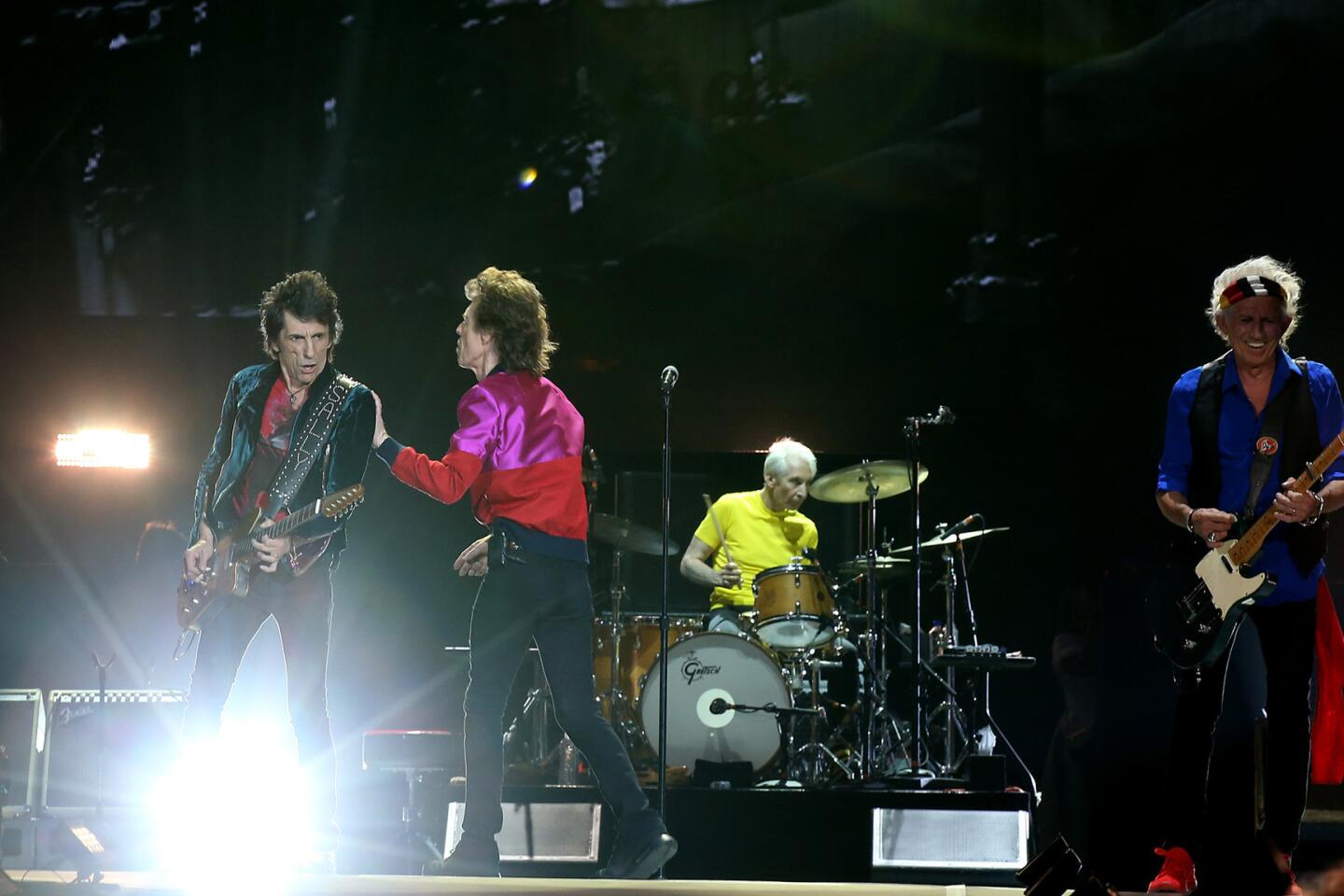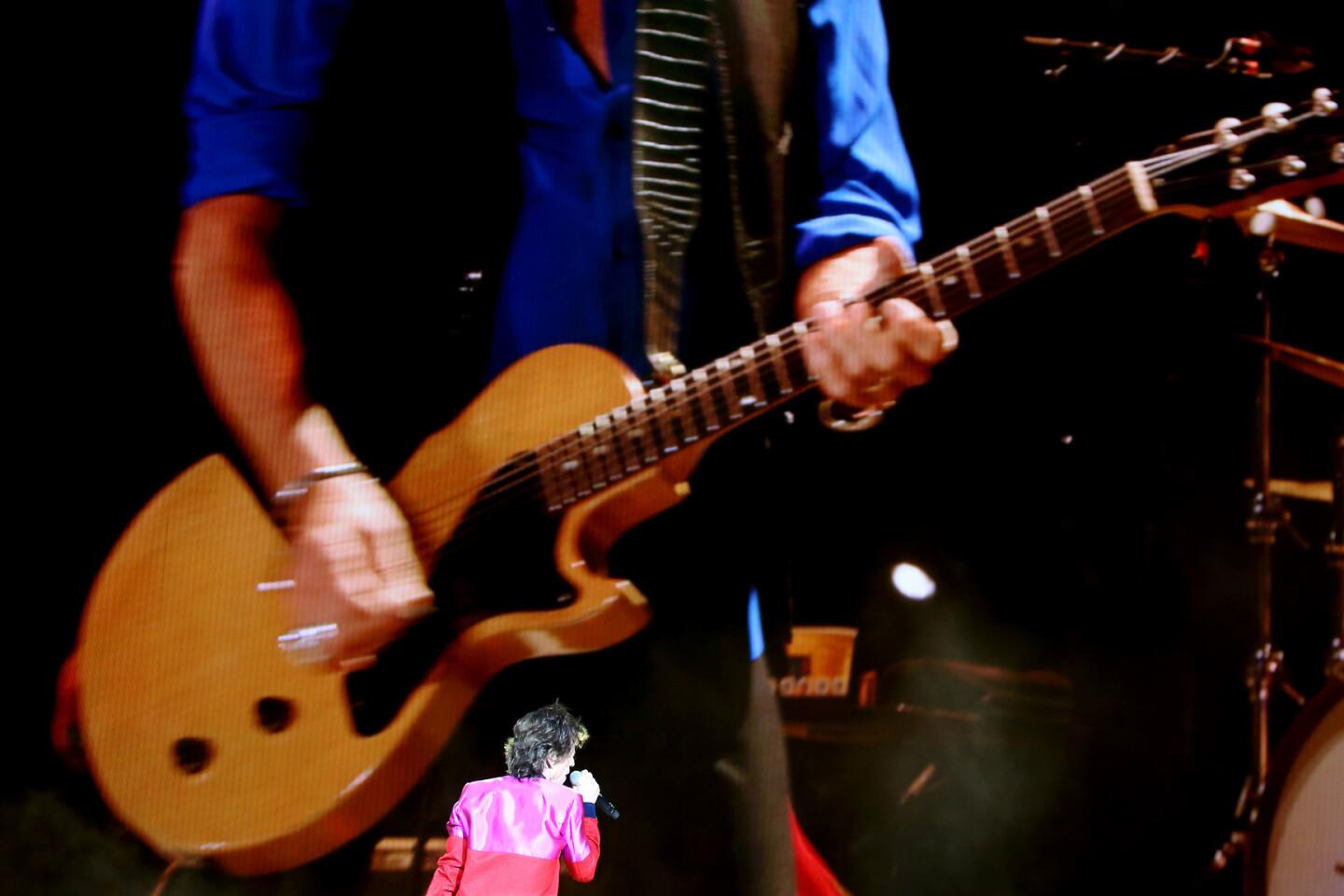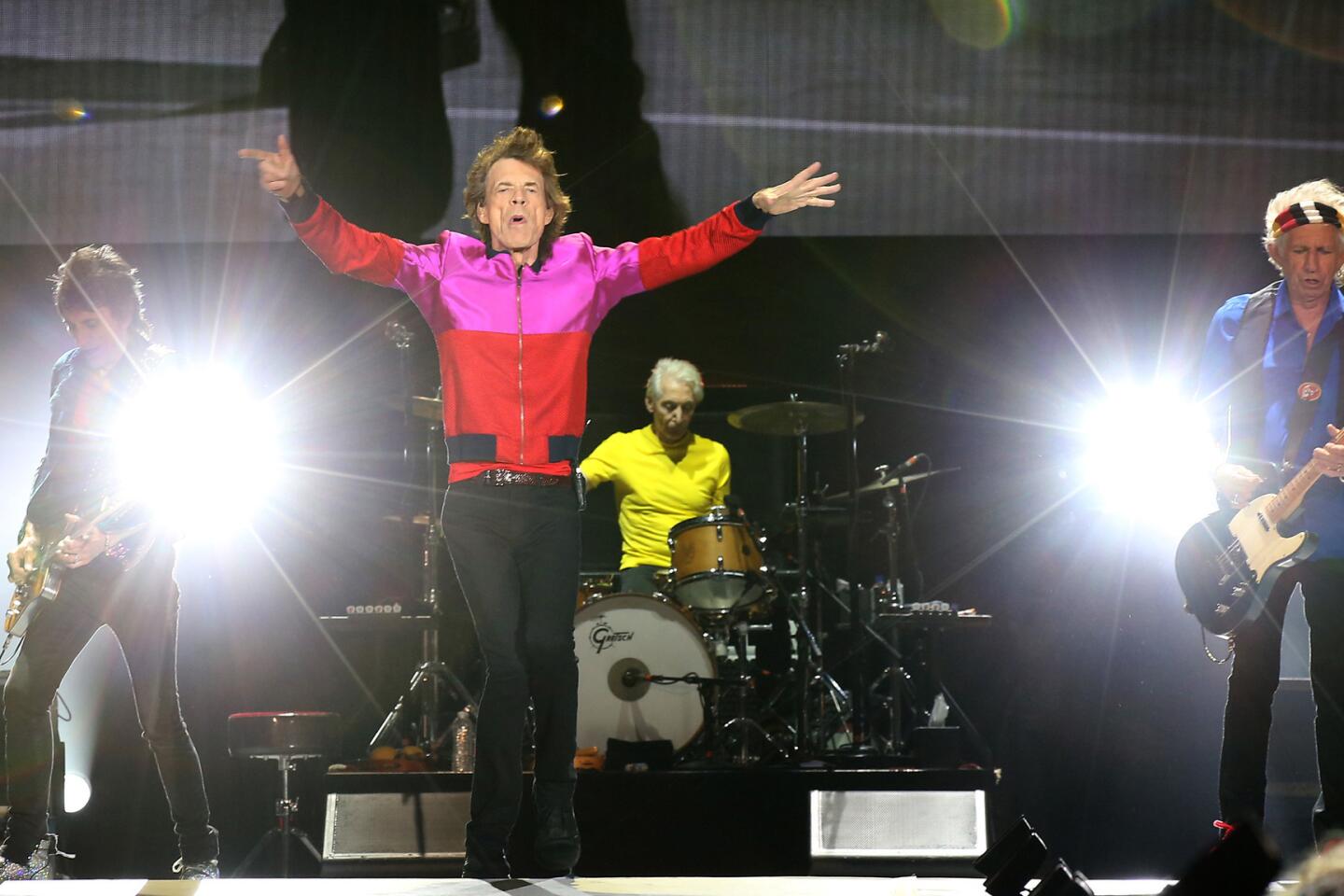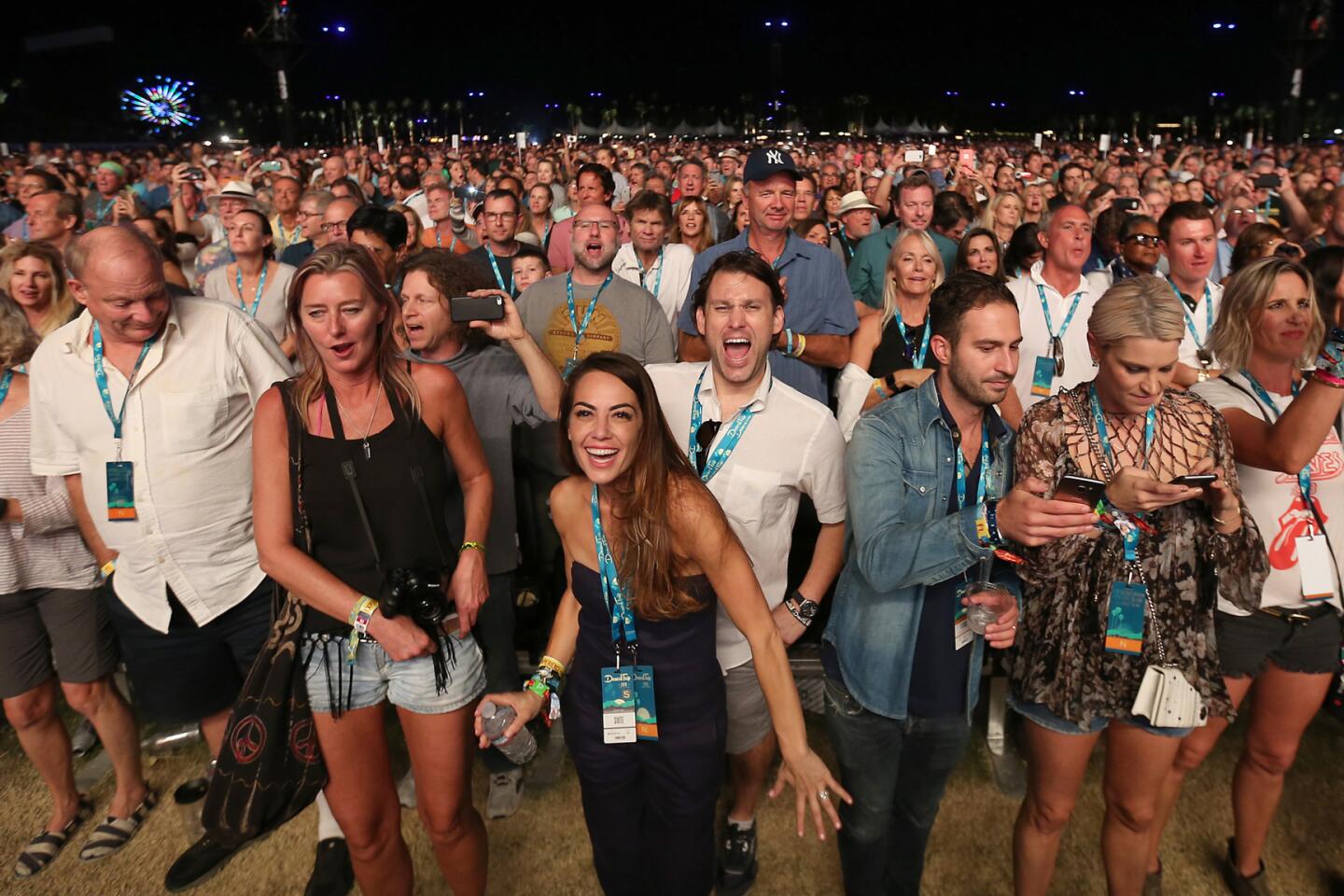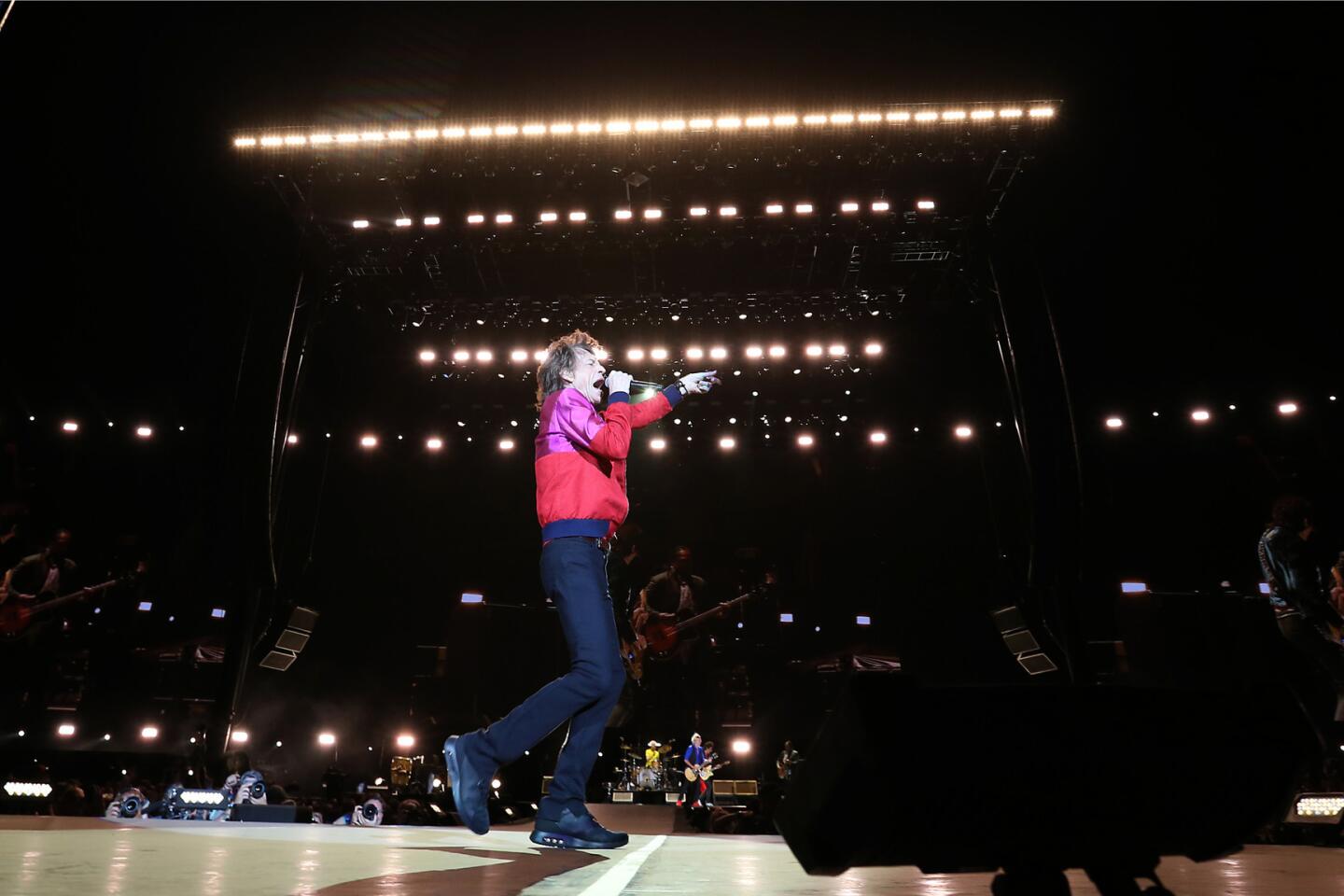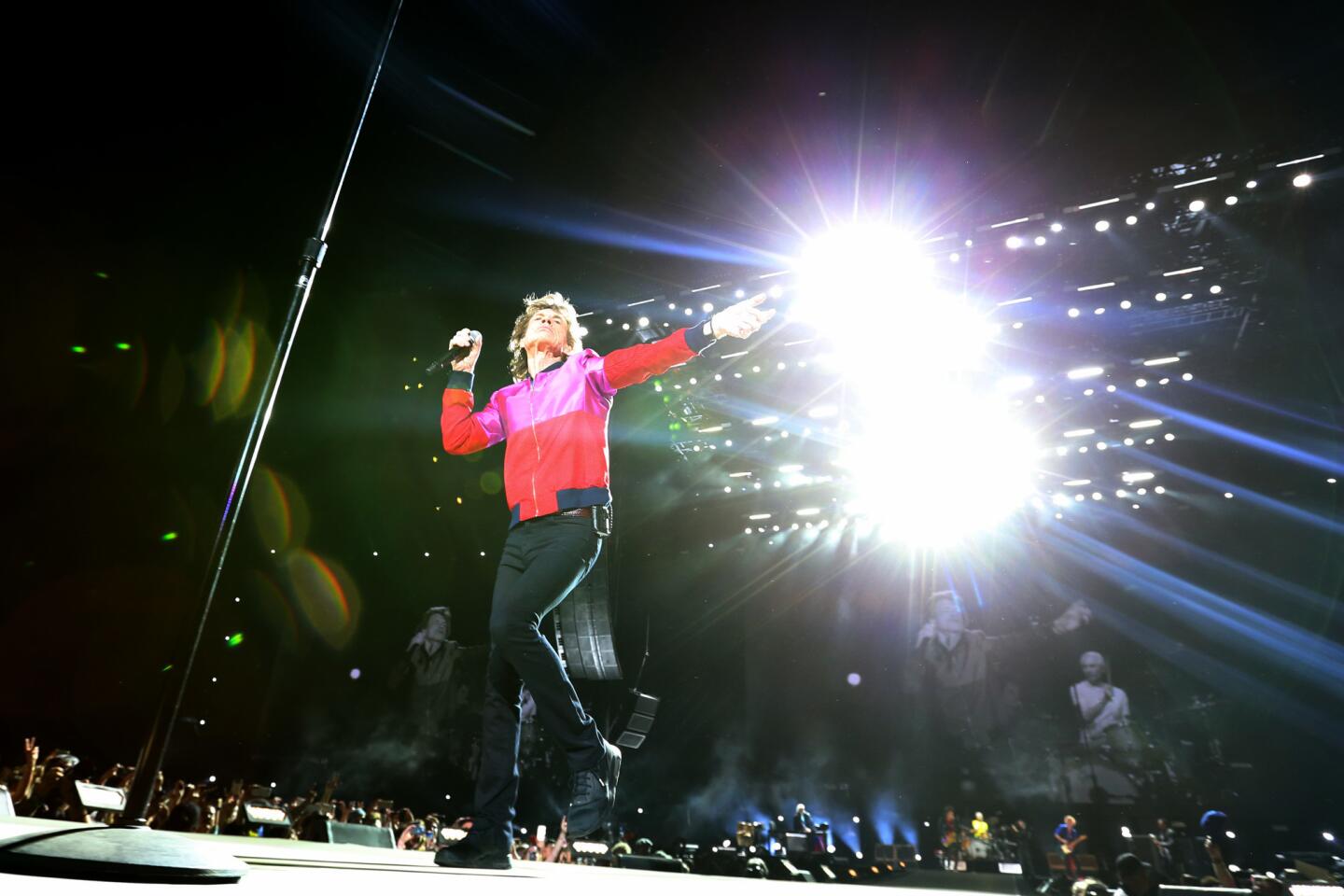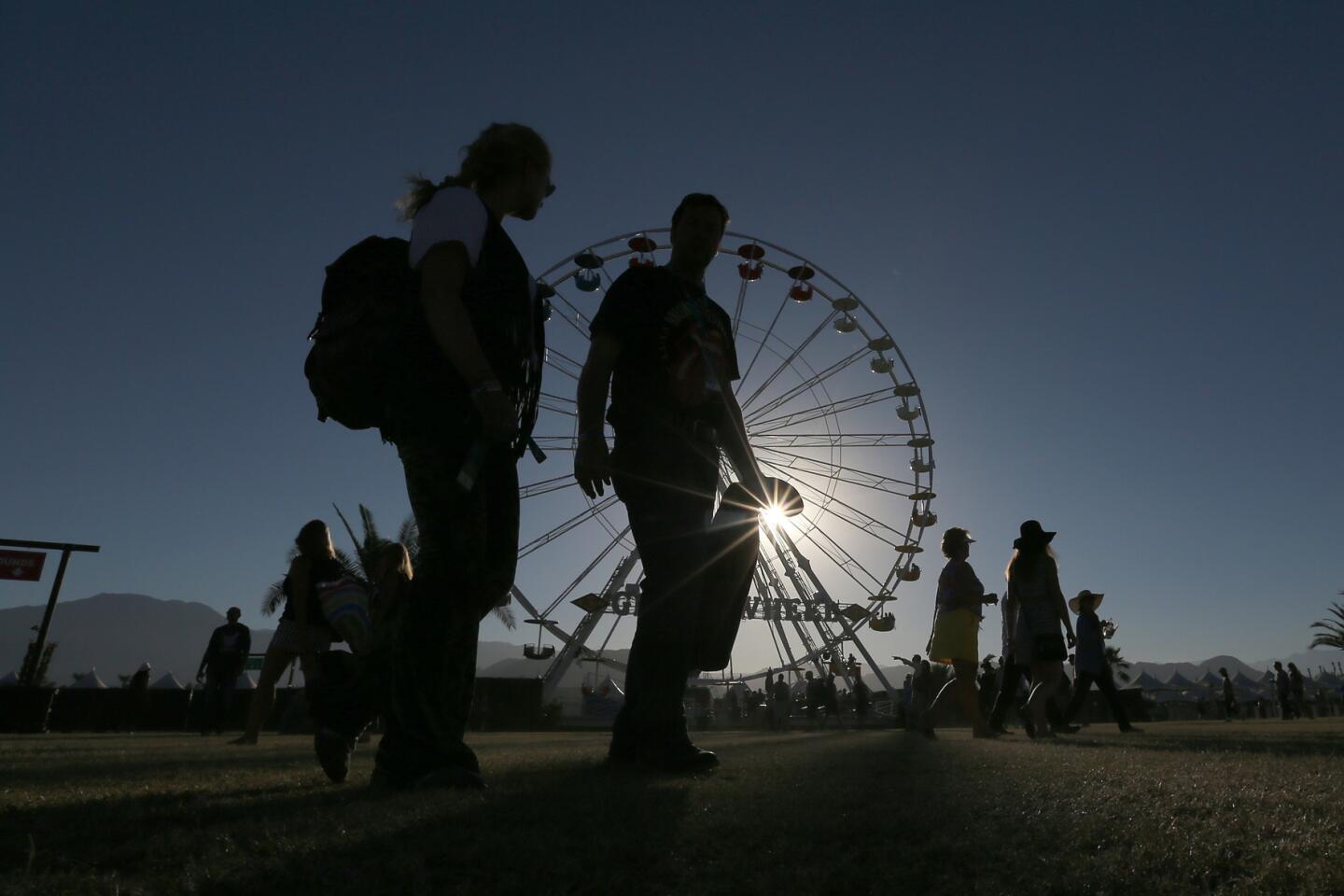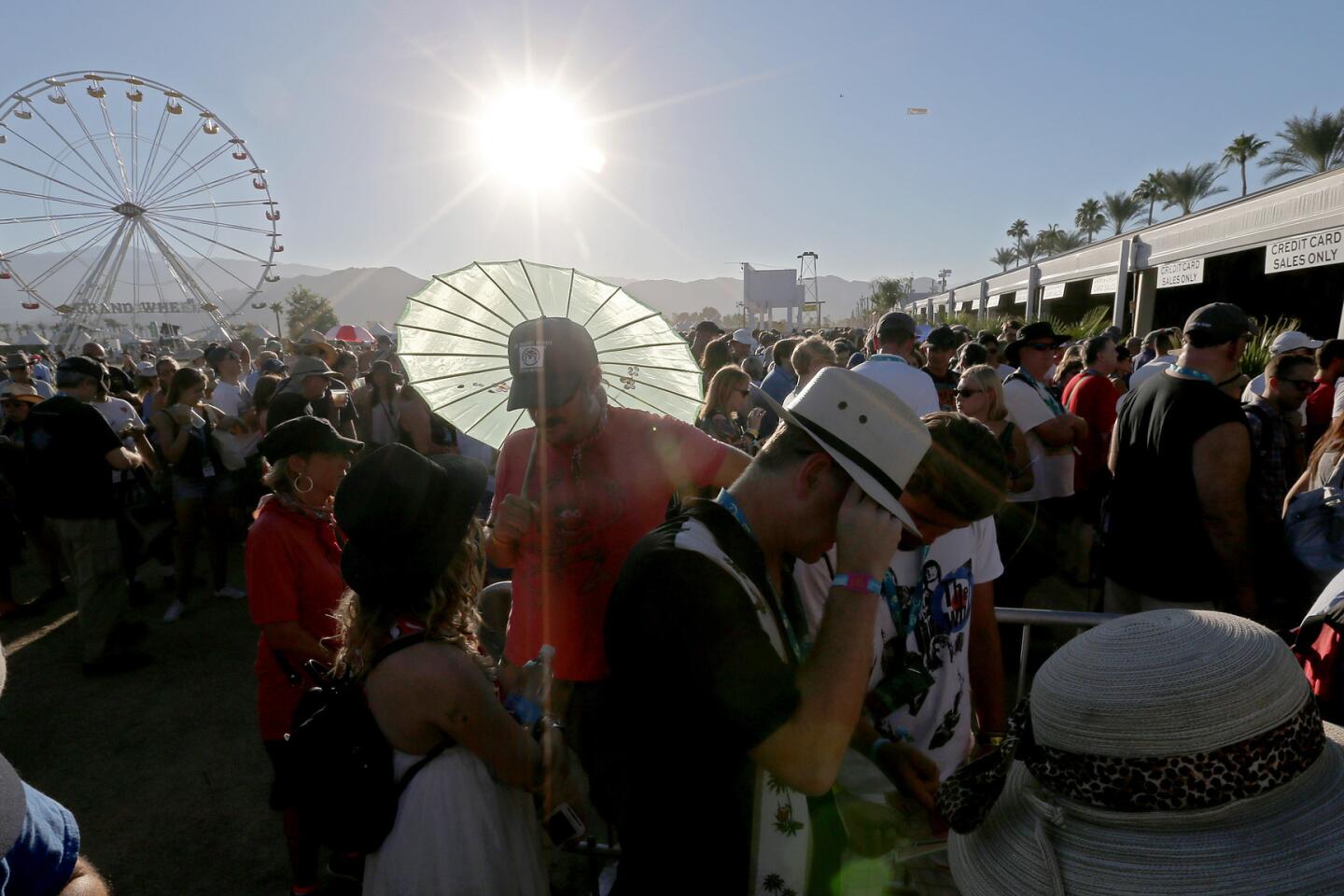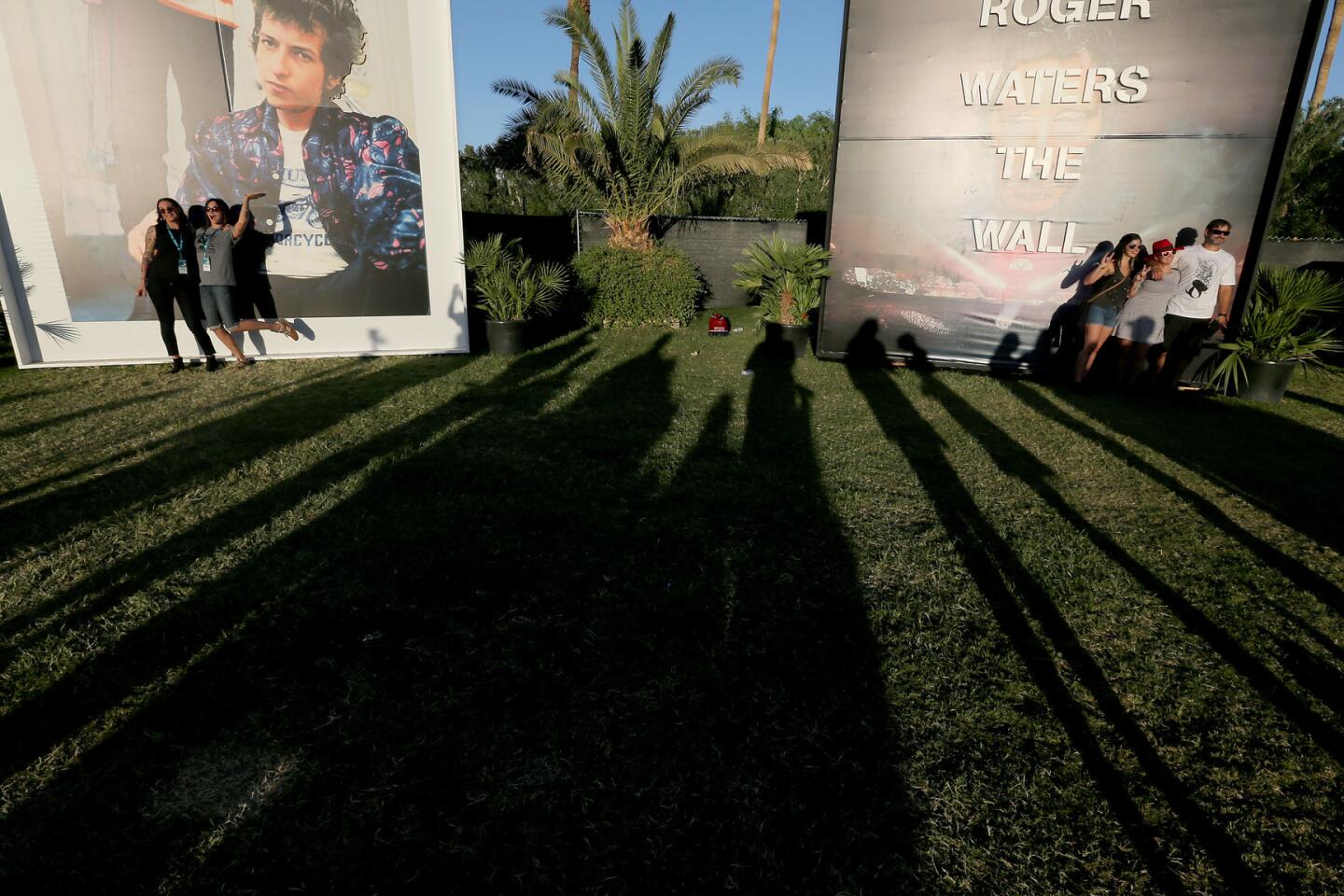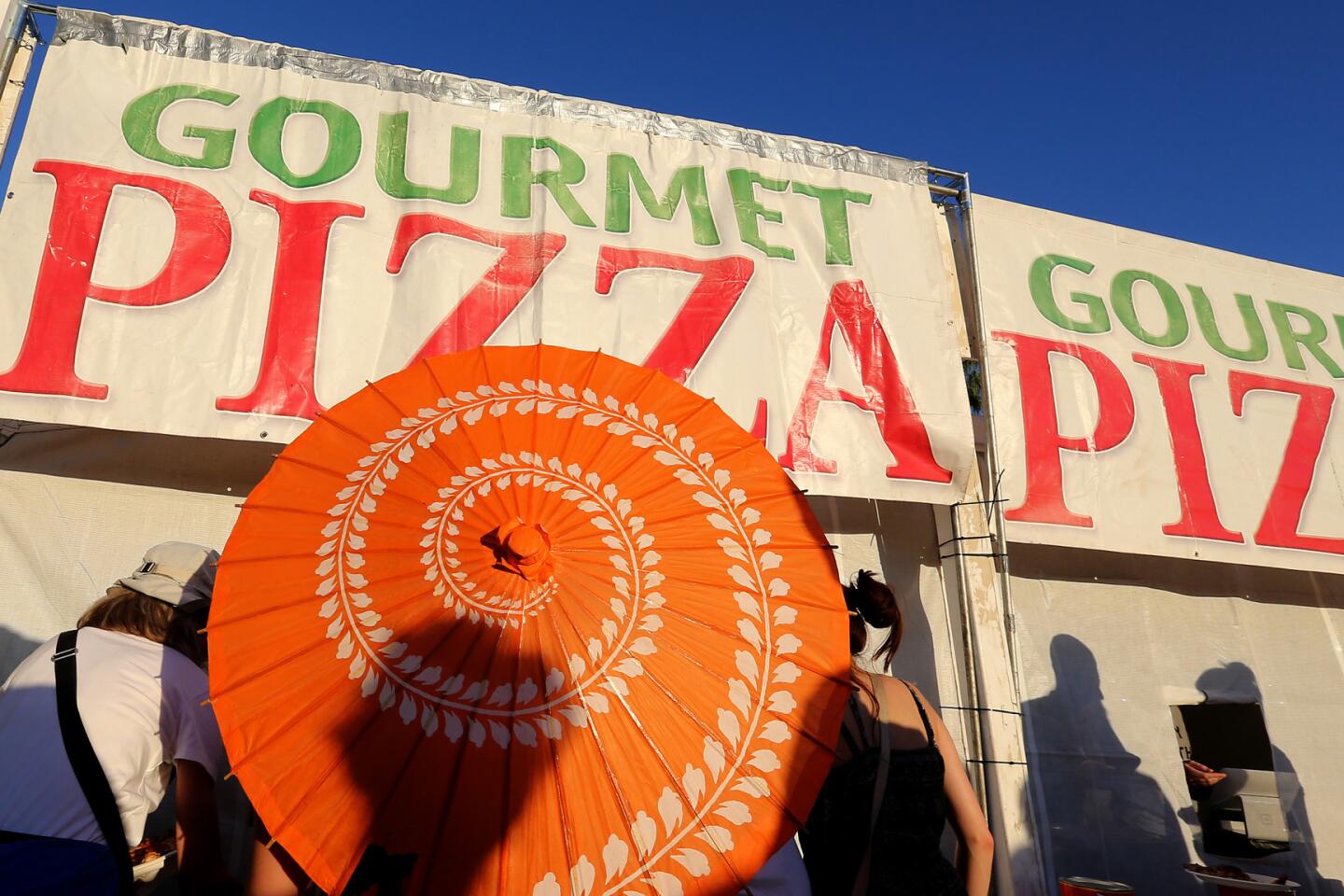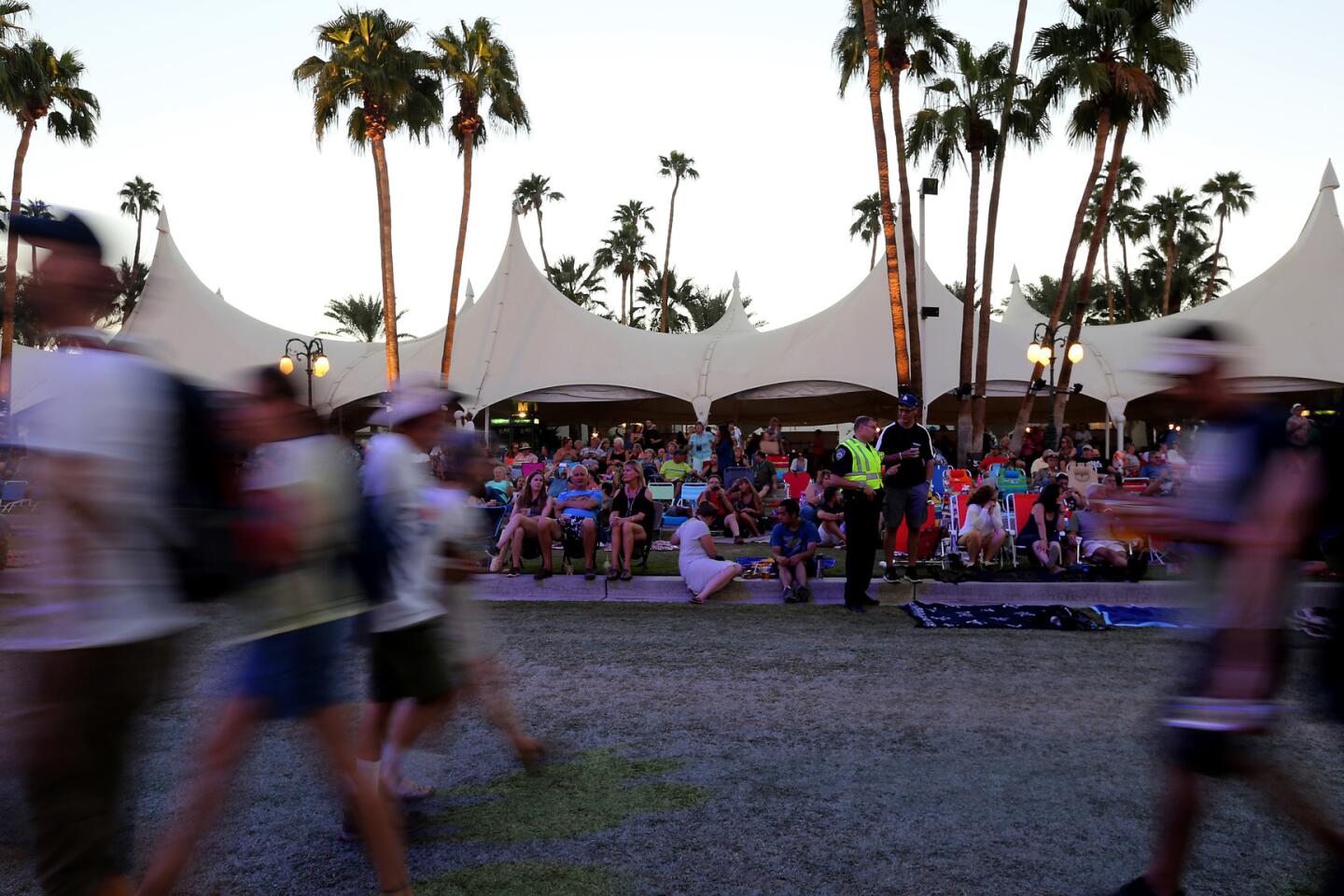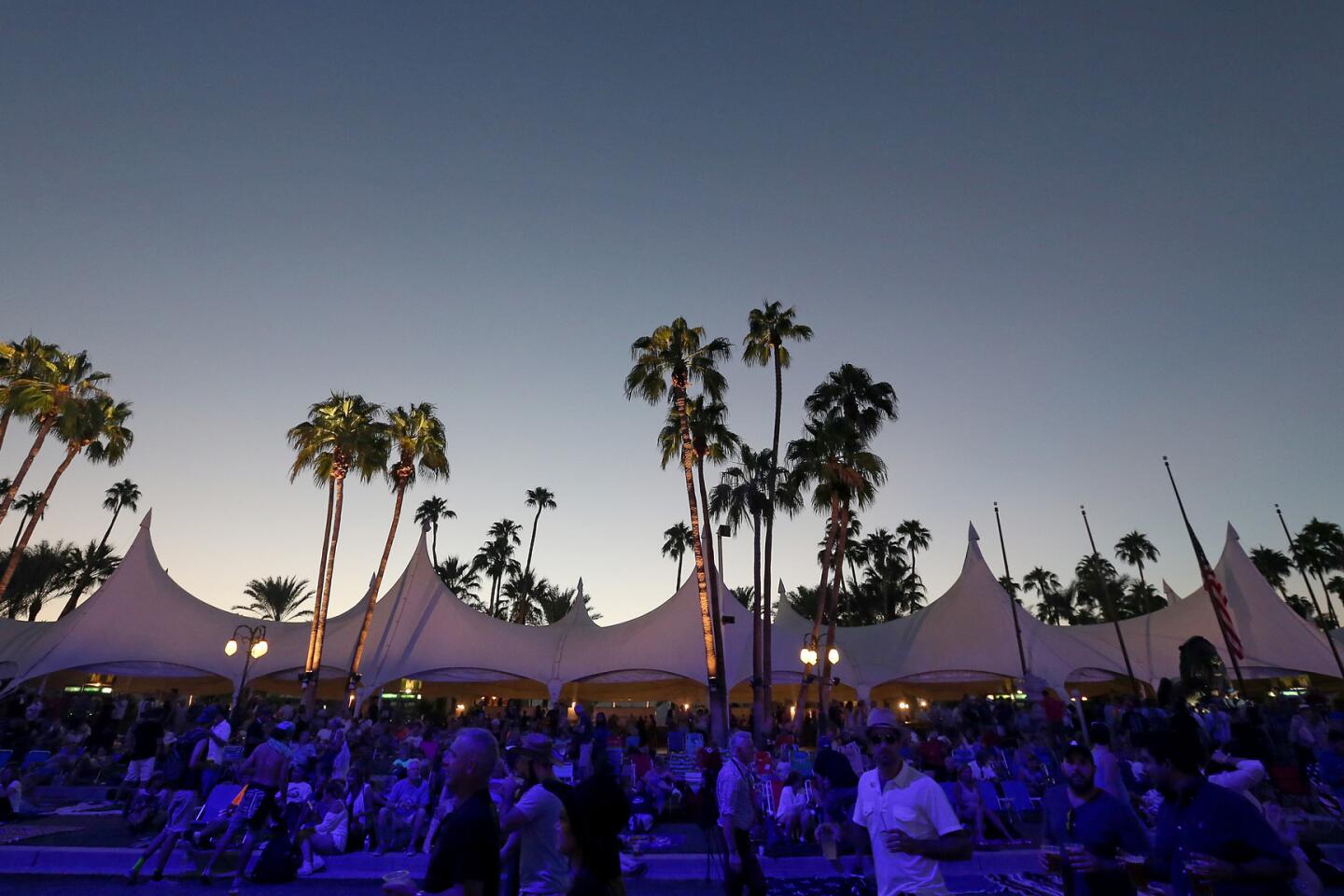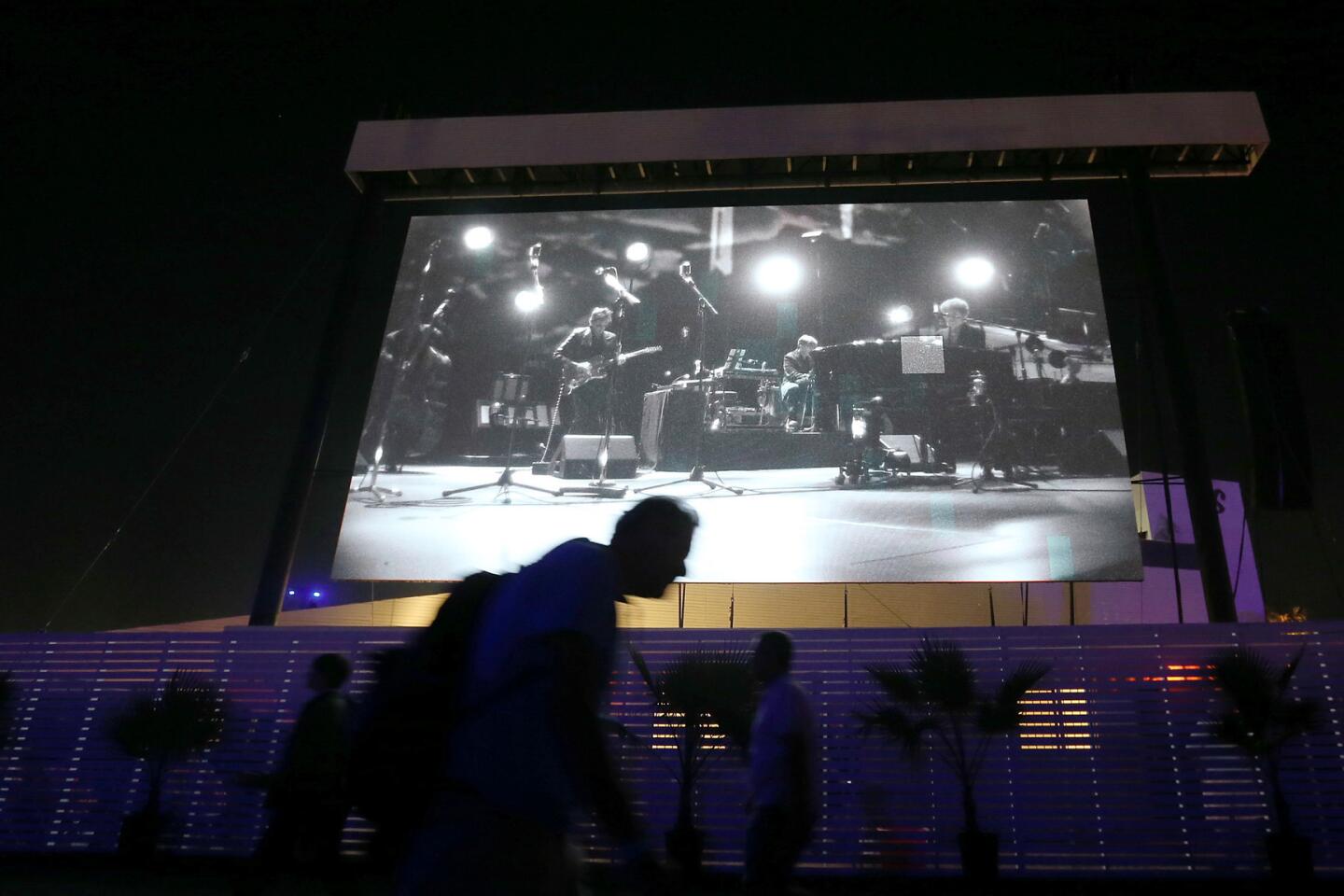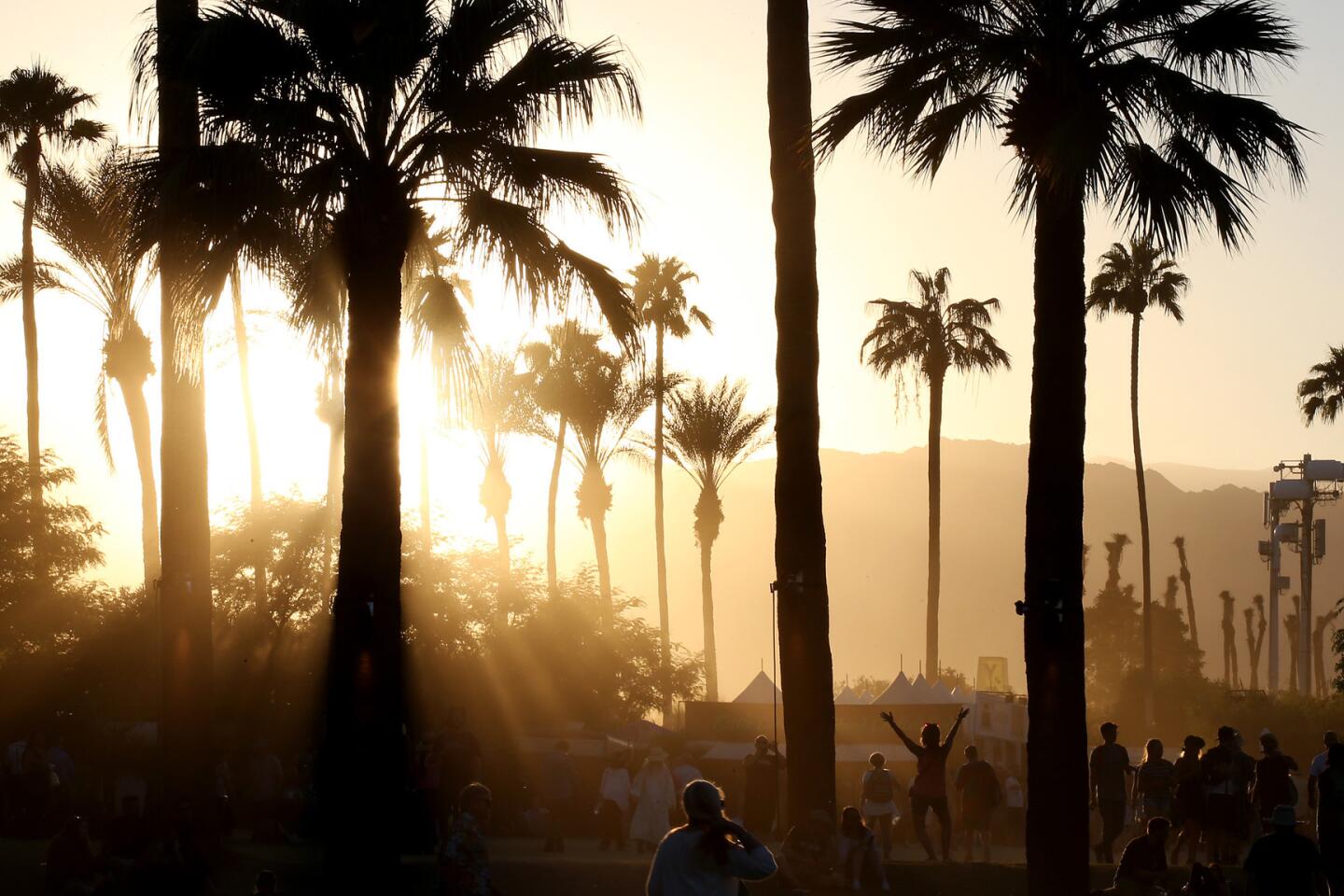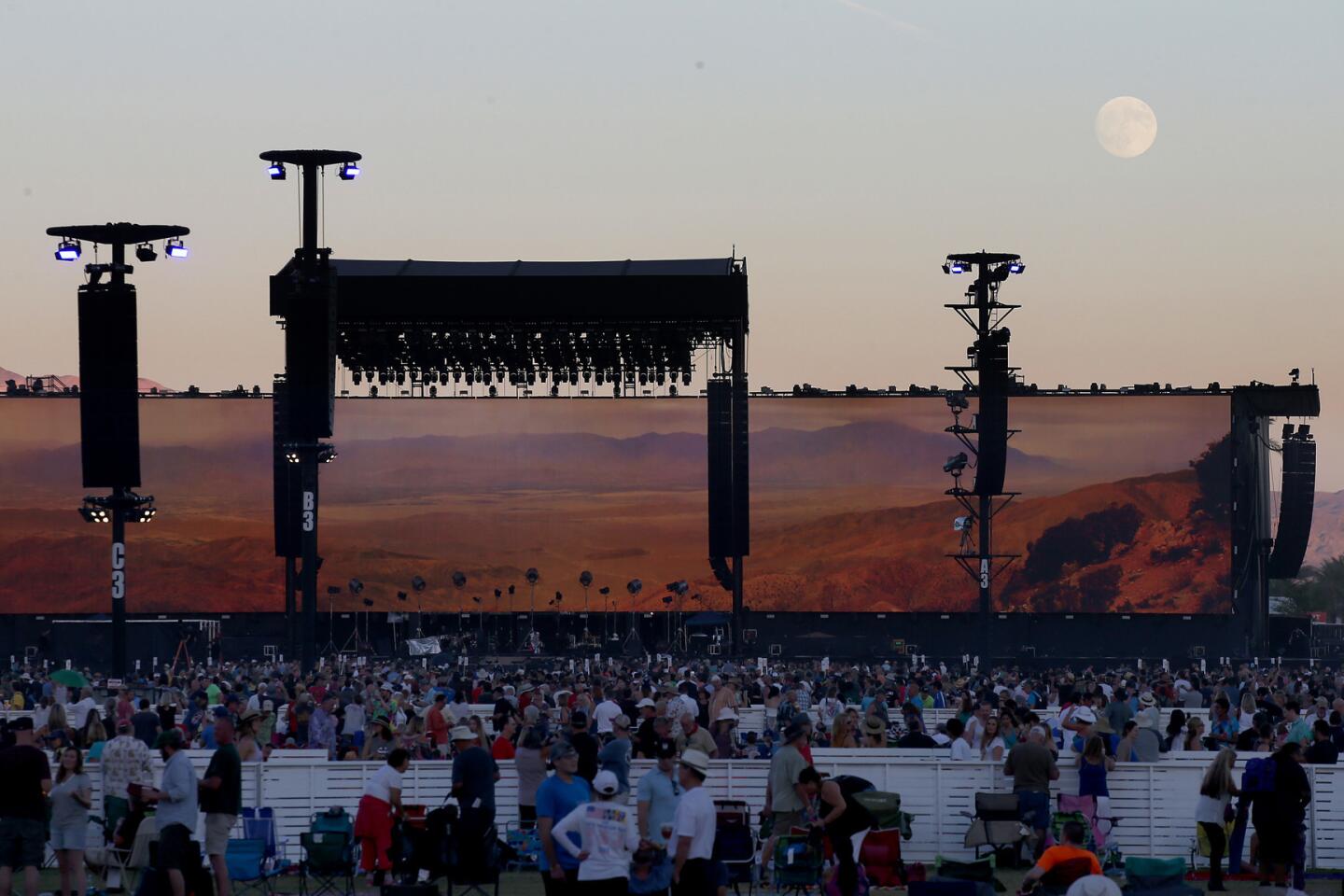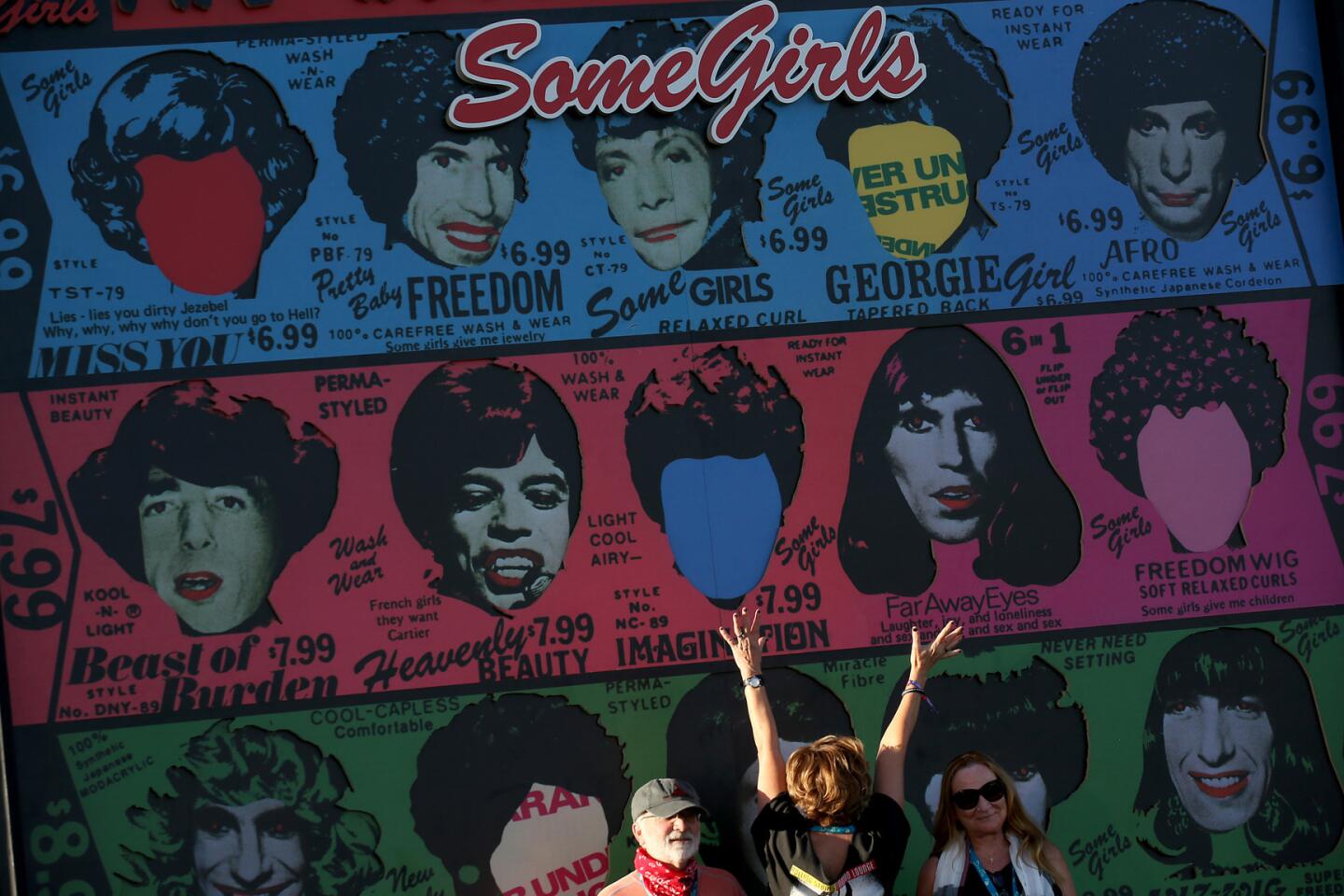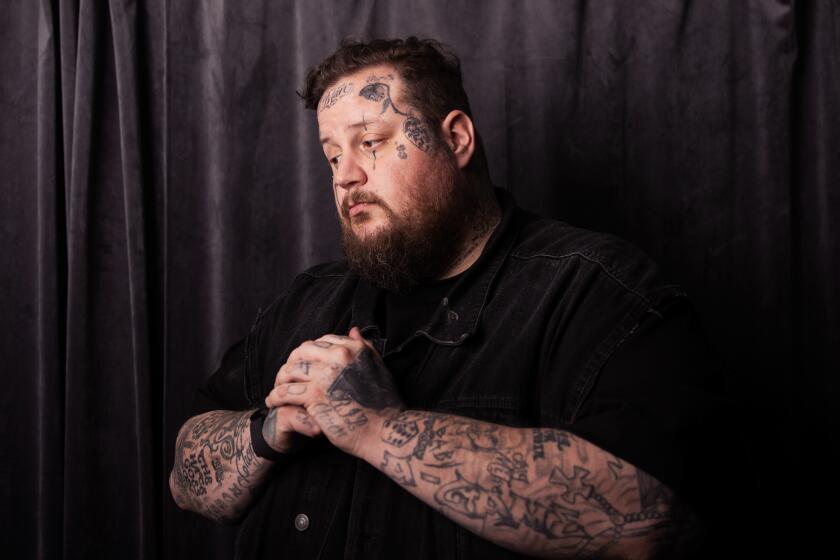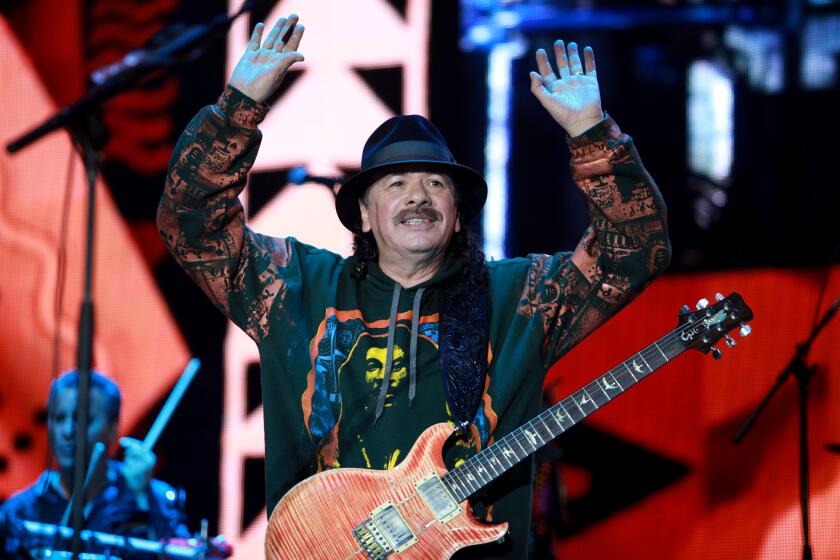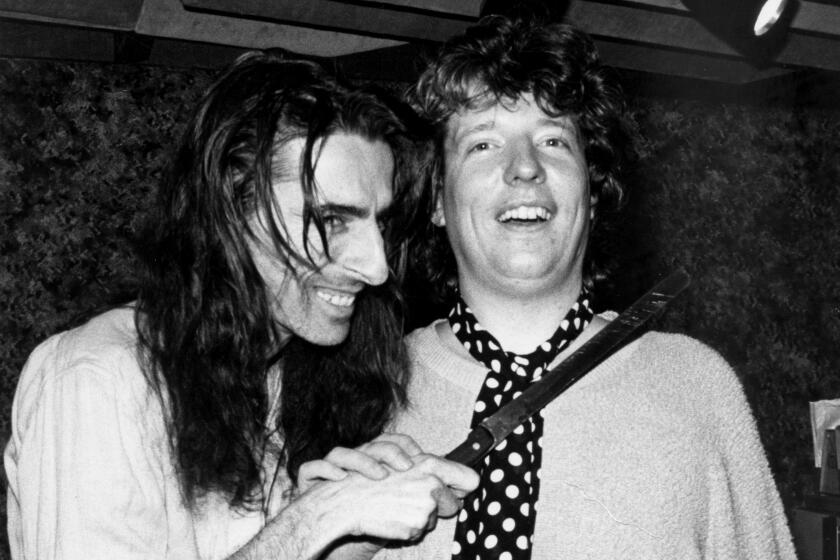Desert Trip: Two weekends, six classic rock acts. Which one was better? Can it be repeated?
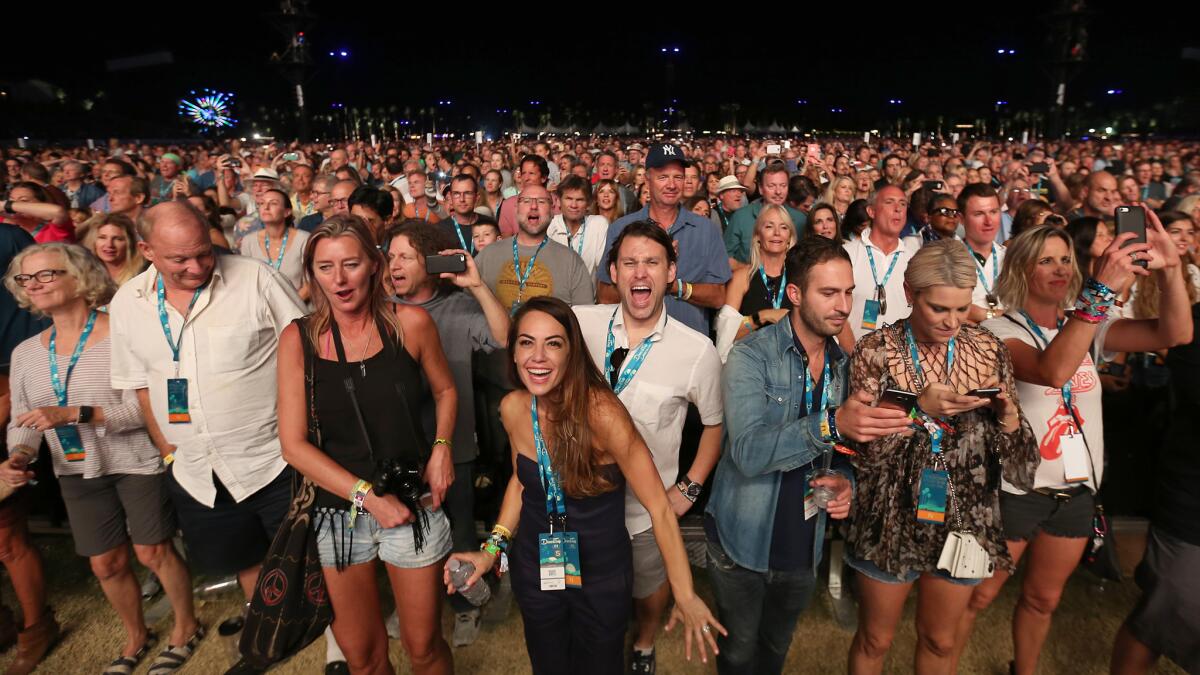
- Share via
The second weekend of the inaugural Desert Trip festival — a sort of summit meeting of six of the most esteemed figures in rock music history — illustrated their wildly divergent approaches.
“Welcome to Desert Trip two!” Rolling Stones lead singer Mick Jagger announced Friday to the 75,000 fans at the Empire Polo Field in Indio. “They say that if you remember Desert Trip one, you weren’t really there.”
Bob Dylan and Paul McCartney turned in sets virtually identical to the ones they delivered opening weekend, while the Stones and Neil Young significantly mixed it up. As performances ranged from the celebratory to the angry, fans — some of whom traveled from other countries — were already dreaming up wish lists for next year. Weekend 2 also began in wake of some rather surprising news in the music and literature communities.
Yet circumspect as ever, Dylan made no mention Friday of the previous day’s reveal that he was the 2016 recipient of the Nobel Prize for literature.
See the most-read stories in Entertainment this hour »
For that matter, he made no announcement on any front, singing a batch of songs spanning his 50-plus year recording career without uttering a word to the audience.
Jagger, Rolling Stones guitarist Keith Richards and McCartney, however, all took the opportunity to congratulate their fellow Rock and Roll Hall of Fame member on his latest accolade.
“The Nobel Prize for Bob Dylan — c’mon!” Richards happily grumbled in the middle of the Stones’ set, following Jagger’s kudos earlier. “Let’s thank Bob Dylan for his set,” Jagger said. “We’ve never shared the stage with a Nobel Prize winner before.”
McCartney also offered congratulations to Dylan, and paired it with another word of appreciation to the predecessor who inspired all the Desert Trip performers in one way or another: rock pioneer Chuck Berry, who turns 90 on Tuesday.
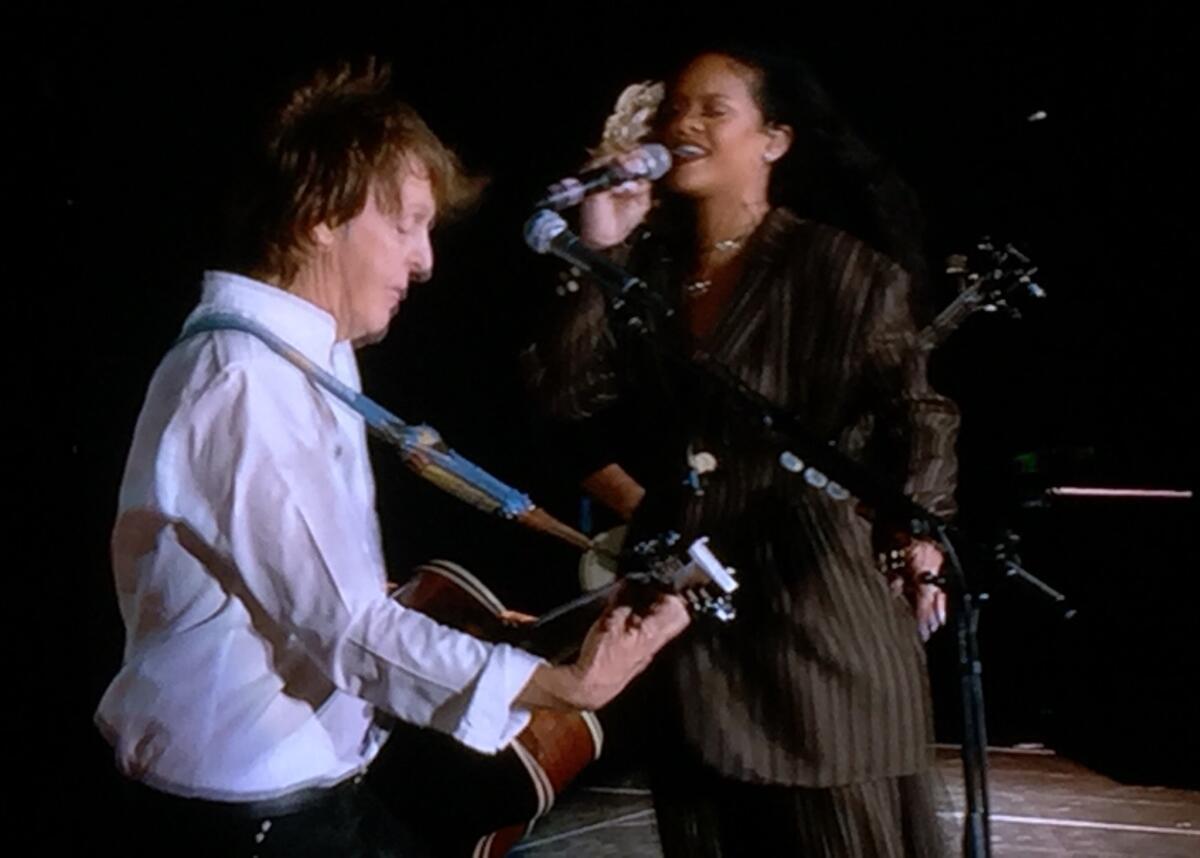
Although the ex-Beatle’s set and running commentary diverged little from last weekend, he brought out Rihanna to help sing their 2015 pop hit “FourFiveSeconds” to the delight of many under-30 fans.
Young, meanwhile, interjected a note of political protest in another house-on-fire performance with the youthful members of his Promise of the Real band.
In keeping with his long-standing advocacy for family farmers through the Farm Aid benefit shows he created in the 1980s with Willie Nelson and John Mellencamp, he voiced concern about laws being passed, including here in California, limiting the transportation of organic seeds from one region to another.
He tossed out small packets of seeds from a wicker basket and told those who caught them to “take them wherever you want, and then turn yourselves into the police.”
In addition to Young, Roger Waters also offered overtly political comments during his opening weekend performance (Waters and the Who were slated to perform again on Sunday evening).
Yet despite criticism for the relative dearth of spoken commentary on political matters from these musical provocateurs during a highly combustive U.S. presidential election, it’s not as if the artists were apolitical. Dylan, once labeled, to his consternation, “the spokesman for his generation,” wasn’t exactly mum on current events, at least to those listening closely.
Along with such early standards from his repertoire including “Rainy Day Women #12 & 35,” “Highway 61 Revisited” and “Don’t Think Twice It’s All Right,” the bard from Hibbing, Minn., also offered up “Early Roman Kings” and “Pay in Blood” from his 2012 album, “Tempest.”

Fans make the Desert Trip for the best that rock ‘n’ roll has to offer.
Anyone thinking Dylan had nothing to say politically couldn’t have been listening during “Early Roman Kings,” when he sang, “They’re peddlers and they’re meddlers/They buy and they sell/They destroyed your city/They’ll destroy you as well.”
Or to this devastating lyric refrain from “Pay in Blood,” which skewers the attitude of many who roam the halls of power: “I pay in blood, but not my own.”
Meanwhile, on Desert Trip’s first weekend, Waters blatantly lambasted Republican presidential nominee Donald Trump with enough vitriol for everyone on the bill, interspersing disparaging images of Trump with on-screen messages, many of which cannot be printed here.
One of the more civil among them: “If You’re Not Angry, You’re Not Paying Attention.”
Waters prompted a number of fans to leave before the end of his grand-scale production when he spoke in support of Palestinians in the hostilities between their country and Israel. For several years, Waters has lobbied his fans and other musicians to join him in backing the Boycott, Divestment and Sanctions (BDS) movement against Israel.
Reports on his first weekend performance prompted StandWithUs, a 15-year-old international Israeli education organization, to announce plans for a counter message during Sunday’s concluding show.
A spokeswoman said StandWithUs had arranged for an airplane to fly over the festival grounds Sunday evening carrying the message, “Support Israeli-Palestinian Peace, Not Hateful Boycotts.”
In general, however, Desert Trip played out as an event where fans from several generations, as well as every continent except Antarctica, found common ground in music.
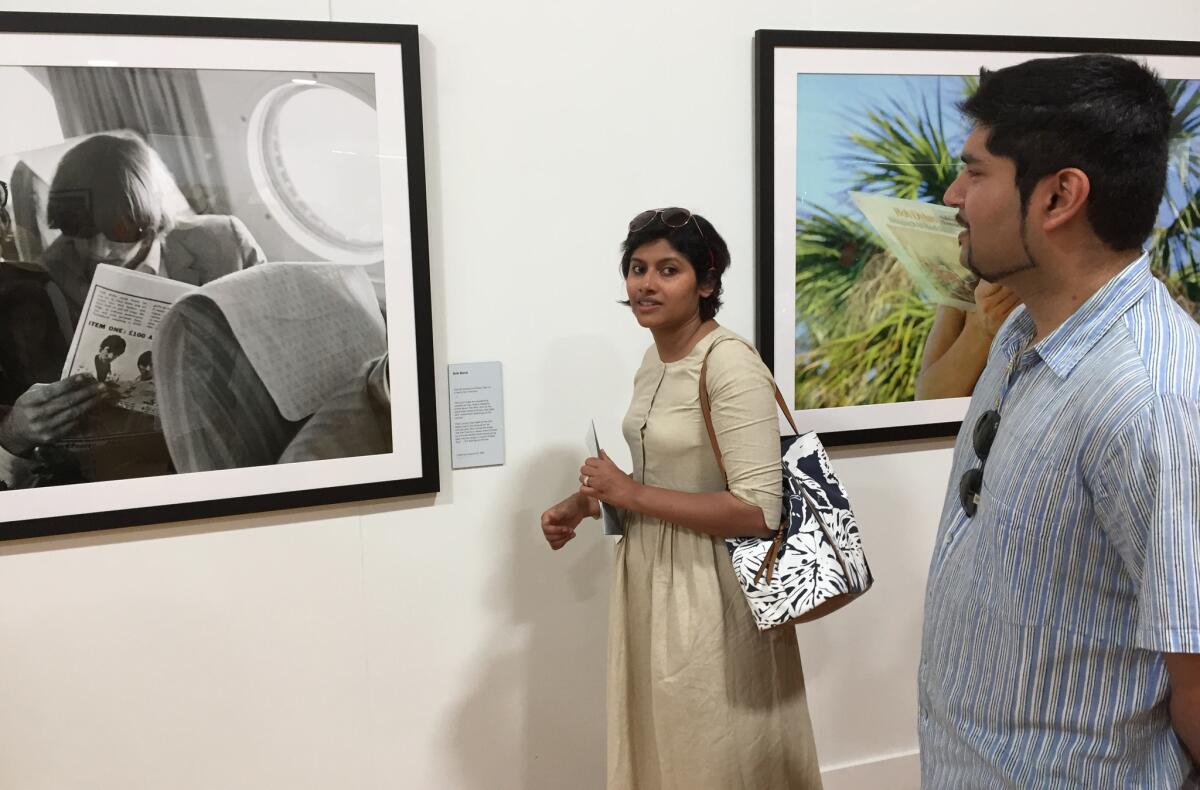
“There’s such a communal feeling,” said Mariana Sanchez, 25, who grew up in Mexico City listening to records by the Beatles, Dylan and other Desert Trip acts.
Her father, Faustino Sanchez, 51, and mother, Ana Marciel, 49, brought all three of their children from San Jose, where they moved from Mexico City in 2007. “Everyone from all different generations are enjoying the same songs together,” Mariana said.
Some were so taken by the heady experience of seeing six of rock’s most celebrated acts together on a single weekend that they talked about who they’d like to see if a sequel were to come to pass. So far, Desert Trip promoter Goldenvoice hasn’t commented on 2017 plans.
“A Led Zeppelin reunion — oh, my God, that would be a whole festival on its own,” said Victoria Hyder, who came from El Paso, Texas, with her friend, Leandra Sanchez. “I just got goosebumps even thinking about it.”
Hyder and Sanchez, each 24, are just under half the average age of 51 of Desert Trip ticket buyers, and one-third the average age of 72 for the festival’s headline performers.
Jagger took note of those numbers. During the first weekend, he referred to Desert Trip as “The Palm Springs Retirement Home for British Musicians,” and on Friday labeled it the “Catch ’Em Before They Croak” festival.
Desert Trip also has been dubbed “Oldchella,” “Dadchella” and “Rockers With Walkers,” among other sobriquets, but matters of age seemed irrelevant to those on hand.
“You want to know what the immigration officer asked me at the airport?” said Eduard Uruchurtu, 59, who flew in from Mexico City to join Faustino Sanchez and his family for the weekend. “He asked why I was coming into the country, and I told him I was going to the big rock festival.
“He said, ‘Aren’t you too old for a rock festival?’ I said ‘No — all the performers are older than me!’ ”
ALSO
Desert Trip: Giants of the Boomer generation speak to Gramps and the grandkids
Bob Dylan’s Nobel Prize response at Desert Trip? It’s a classic
Desert Trip features Rihanna and Paul McCartney on stage, and multiple generations in its audience
Desert Trip: A harvest moon descends over Neil Young
Fans flock from around the globe for ‘once-in-a-lifetime’ Desert Trip
More to Read
The biggest entertainment stories
Get our big stories about Hollywood, film, television, music, arts, culture and more right in your inbox as soon as they publish.
You may occasionally receive promotional content from the Los Angeles Times.
